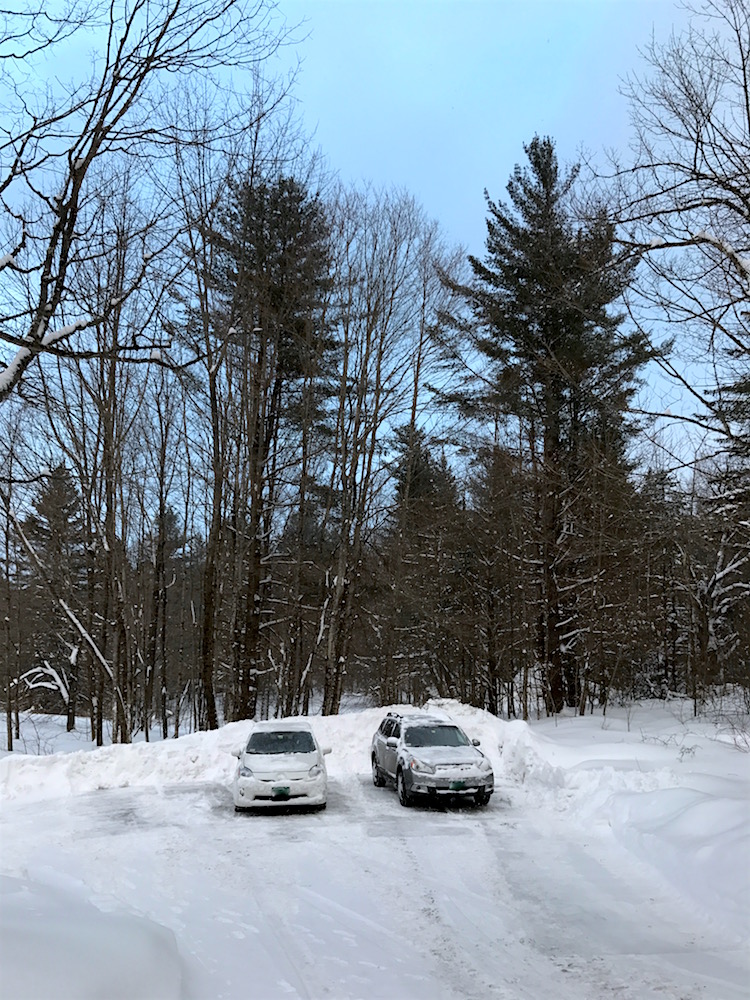
Buying a brand new car has to be one of the worst financial decisions a person can make. I’ve said this before and I continue to harp, even though I know it sounds a tad… oh what’s the word… hardline? Crazy? Like a frugal evangelist? Nevertheless, I persist because it’s one of those purchasing decisions with the power to impact your longterm financial health in a profoundly negative way.
My past harping on this topic is enshrined in the following:
- Help Us Choose The Next Frugalwoods-mobile!
- Ode To An Old Car: Our Money-Saving Machine
- Our Frugal Solution To The All-Wheel Drive Conundrum
Most of us need a car in order to get to work, buy groceries, take our kiddos to the doctor when they have their fourth fever of the month… and so it’s easy to be lulled into thinking a car is a necessity. The key is to recognize that a car is a necessity in the same way that food is a necessity. Few of us would consider eating at a five-star restaurant every night to be a necessity, even though it’s a delivery mechanism for the nutrients required to stay alive. Most of us view prudent grocery shopping as a much more economical way to meet that need. It’s the exact same calculation with a new versus a used car.
While a car might be necessity, a new car is nothing more than kidding yourself into thinking five-star restaurant meals are a ‘need.’ The caveat here is if you’re a billionaire. If that’s the case, then this article is totally irrelevant to you and you should stop reading now. Ok, if you’re still here, we’ll assume your net worth is somewhere south of $1B, which makes this article quite relevant to you indeed.
But I NEED a New Car!!!
Let’s start by examining the reasons most commonly touted as justifications for buying a new car:
1) I must have safety and reliability.
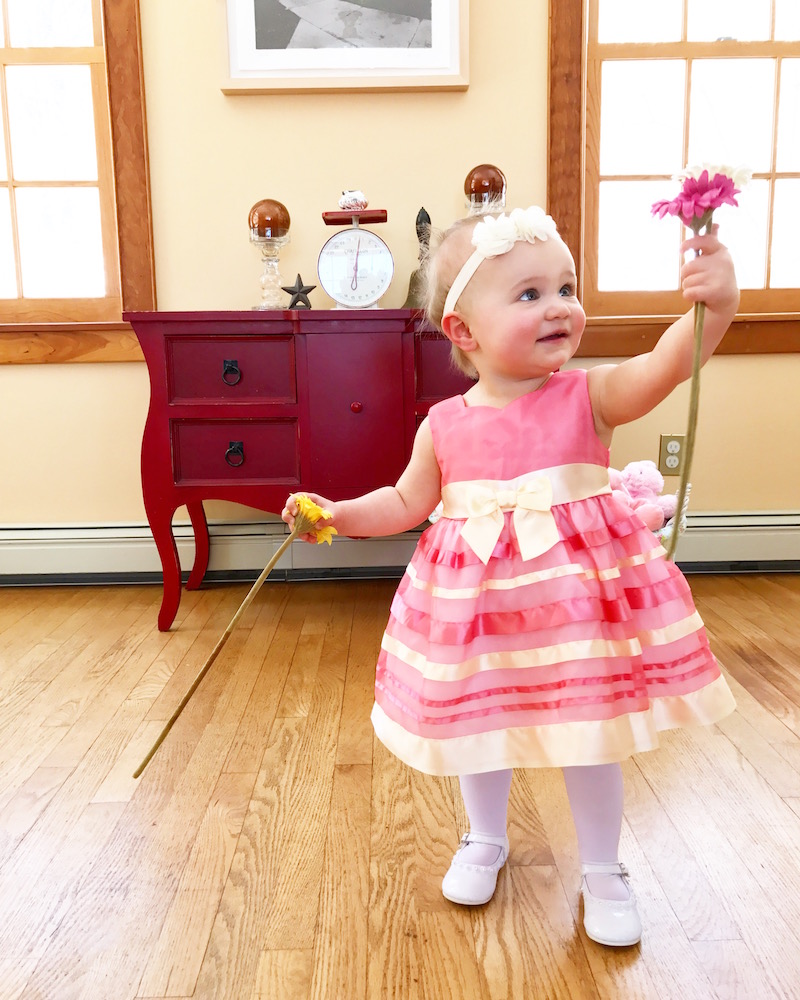
I am with you 100%! I too want a safe and reliable car, especially since I frequently transport the priceless cargo of my daughter and the 1 million toys that now live in our backseat with her.
It’s quite true that some cars are safer and more reliable than others. However, new cars do not offer either of these attributes in any greater quantity than a good used car. Just as you wouldn’t buy a crappy new car, don’t buy a subpar used car!
Plus, new safety “must haves” are rolled out onto the market annually–so, are you going to buy a new car every single year? Hopefully not! While I certainly don’t advocate driving an unsafe vehicle, there’s a happy middle ground. Use your best judgment and know that everything touted as “top of the line” this year will be dated just 12 months later.
2) I’m afraid a used car will break down!
Buying a used car does not mean buying a hunk-o-junk. There are plenty of lovely pre-owned vehicles that offer top-of-the-line features. A good car is a good car, whether it’s a 2017 or a 2010–and the same goes for a bad car.
Avail yourself of the multitude of research materials available on car reliability (more on that below) and choose a vehicle wisely. A new car is in no way guaranteed to never break down or need a repair. And a good car that’s a few years old isn’t going to exhibit an endless stream of needed repairs. Plus, it’s still cheaper to pay for repairs on a used car than to buy a new car (we’ll get to the math on that in a minute).
2) All-wheel drive is a requirement.
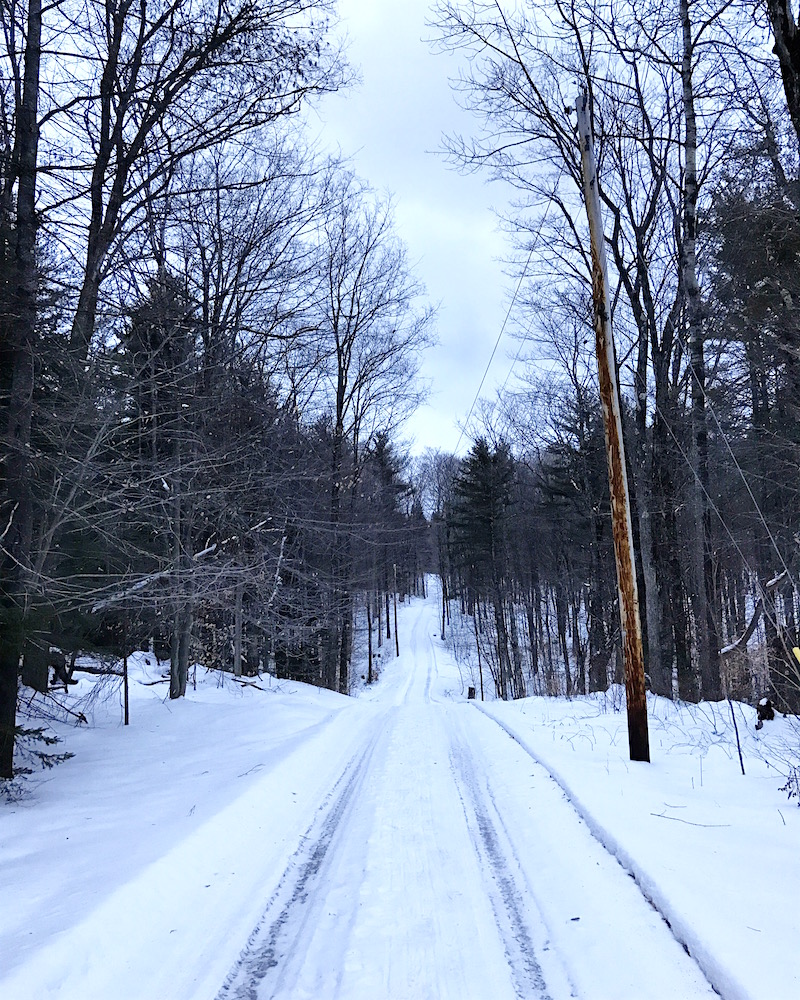
I’m with you here again! If you live in an exceedingly icy and snowy climate–for example Vermont–then all-wheel drive can be the difference between making it out of your driveway or not making it out of your driveway. Here again, you can achieve this result with a used vehicle.
If I can get out of my quarter-mile long, hilly, gravel, snow/ice-packed driveway in a 2010 Prius with snow tires (not to mention in my all-wheel drive 2010 Subaru)? You too can navigate your roads in a used car.
Living in a snow-laden climate does not mean you need a brand new truck or SUV. It’s simply not necessary. What is necessary is a vehicle that makes sense for your lifestyle and your geography.
3) I like how new cars look…
Aha! Now we’re getting to the heart of the matter. While it’s easy to find safety, reliability, and all-wheel drive in a pre-owned vehicle, it’s not possible to find brand new shine. And that’s a good thing. A car is not intended to serve any other function than to safely transport us. It’s not a status symbol, it’s not an indicator of our success, or our wealth, or how cool we are. It’s a freaking car, people.

When we imbue our material possessions with power that outstrips their intended functions, we’re setting ourselves up to: 1) be disappointed; and 2) overspend. A car, and any other object, is not a stand-in for human emotions. Its purpose isn’t to make us happy. When we look to things to deliver happiness to us, we’re liable to stretch our budget and find ourselves ensnared in cycles of debt.
Naturally, there’s a caveat here. If you can afford to pay cash for a status symbol car–and that’s how you really want to use your money–then go for it. But do so with the full knowledge that it’s a luxury purchase. And you know what I say about luxuries: if you can’t pay for them in full and with cash, you can’t buy them.
4) But I got a good trade in!
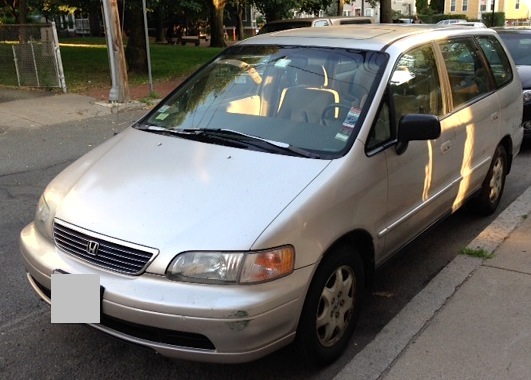
Really? If you’re trading into a dealer for a new car, they’re very likely paying you well under what your existing car is actually worth. You’re better off selling an older car through Craigslist and then buying your own used vehicle (possibly also through Craigslist).
I, for example, sold my 1996 Honda Odyssey Minivan for $1,000 through Craigslist in 2016. No dealer would’ve ever come close to that dollar amount in a trade-in situation, even though it’s a great car that runs just fine. Car salespeople are there to make money–not to cut you a deal. Eliminate that middleman and you’ll reap savings.
5) But I’ll drive it forever!
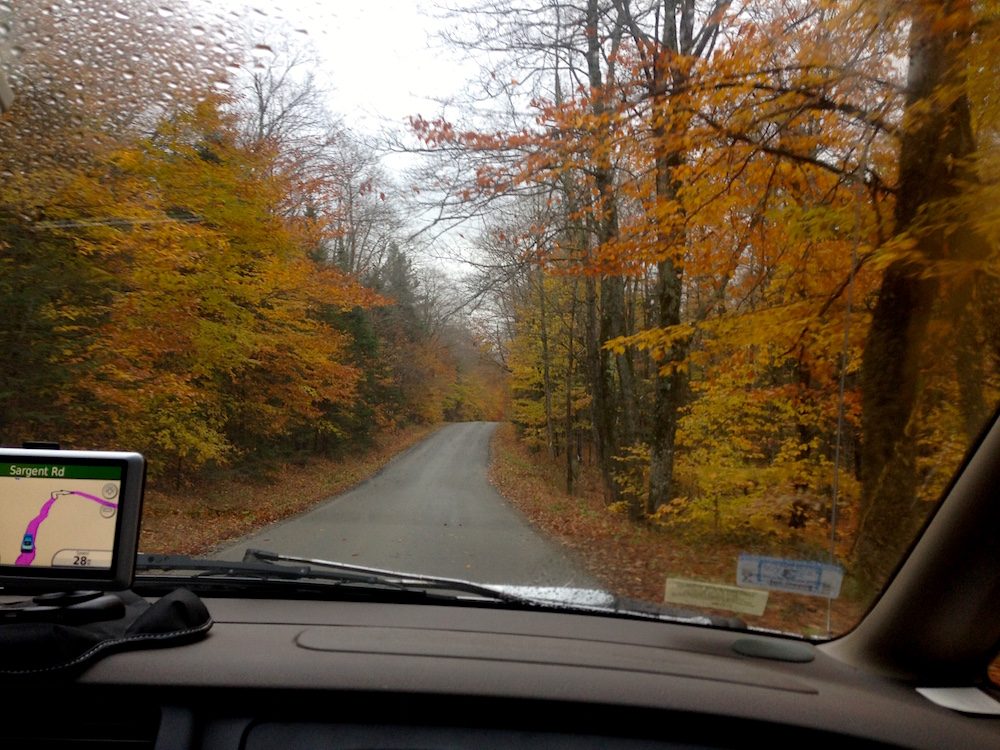
First of all, are you sure? In 10 years, in 15 years, you won’t be lusting after the latest models? I’m a proponent of “drive it forever,” but you can do this just as well with a used vehicle. Might you need to replace a used car sooner than a new car? Perhaps.
But consider the following: I drove my first car (a 1990 Toyota Camry station wagon that I bought used for cash when I was 16) until it was 16 years old… and then my brother drove it for another few years. And my second car–that 1996 Honda Odyssey minivan–Mr. FW and I drove until it was 20 years old… and then we sold it because it still worked great.
The Compounding Horror Of Buying A New Car
Buying a new car is like shooting yourself in the foot not once, not twice, but three times. Here’s why:
- The mark-up on new cars is astronomical.
- The opportunity cost of buying a new car–even if you pay cash–is profound.
- Most car loans have interest rates, which means you’re spending even more money.
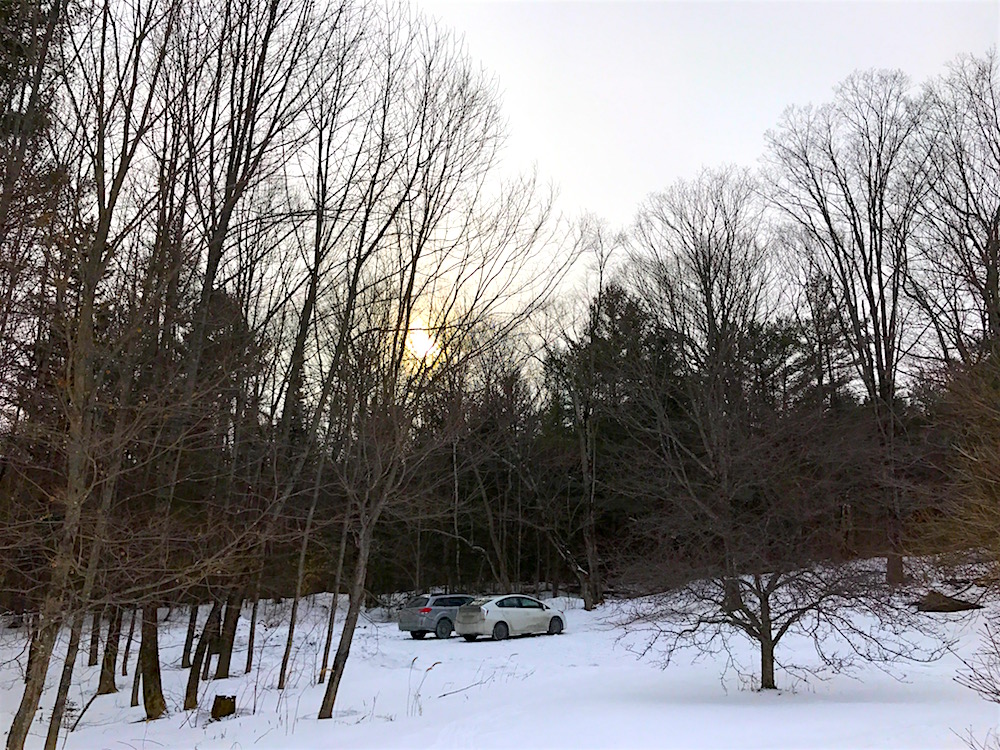
A financial triple whammy. Cars lose value the minute–nay, the second–they’re driven off the lot. Hence, you’ve paid a price that you will never, ever recoup (unless it’s a vintage/antique car situation, which is not germane to this conversation).
Unlike a home–which sometimes, hopefully increases in value–a car is almost guaranteed to decrease in value. A car is not an appreciating asset.
Hence, you’ll never re-sell a new car for anywhere near what you paid for it. A raw deal, to be sure. With a used car, however, since you’re paying a price stripped of the brand new dealer mark-up, you won’t sell it for what you paid for it, but the margin is likely to be much narrower and will help offset the purchase of your next (used) vehicle.
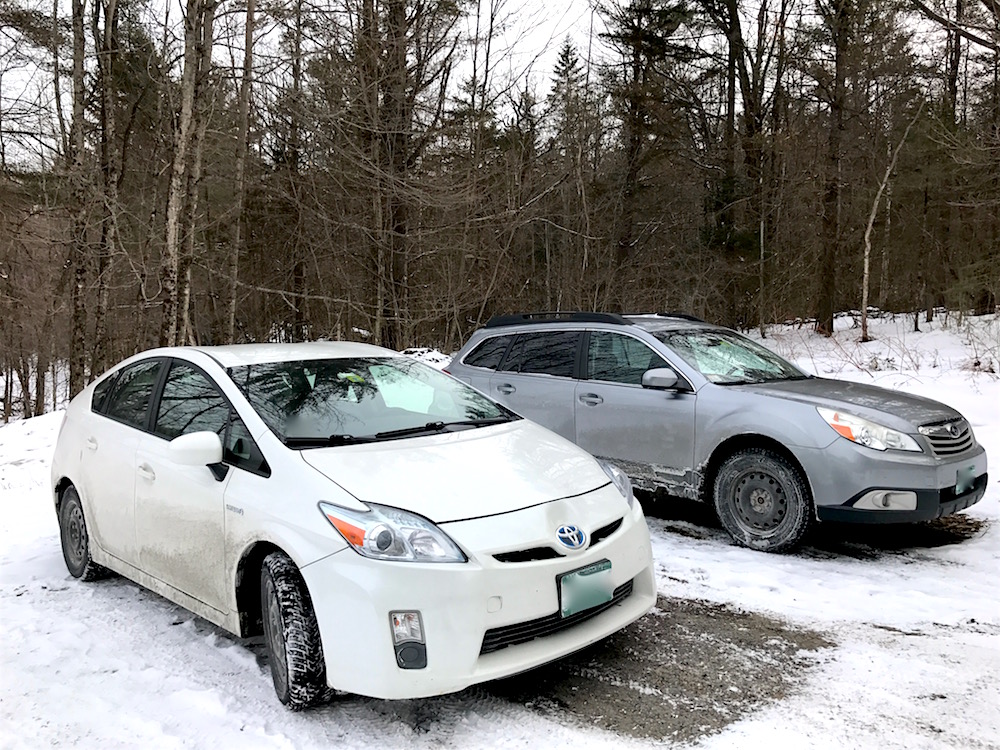
On top of that, unless you pay cash, you’re now saddled with a loan that very likely has an interest rate attached to it. Thus, you’re paying even more for this depreciating hunk of metal.
Interest compounds and it can do so in your favor (through investments, for example) or in your creditors’ favor (through the interest rate on a car loan, for example).
Thirdly, even if you do pay cash, purchasing a new car represents a massive opportunity cost since it robs you of doing a plethora of other things with that money. It’s not just the money you’re spending on the car, it’s also all the money you’re not making in the stock market by not investing the money you spent on the car.
Let’s look at some real numbers, because who doesn’t love math?!?
In spring 2016, in preparation for our move to our rural homestead, Mr. FW and I bought the following vehicles (the full story on their purchase is here):
- 2010 Subaru Outback for $12,000 (paid in full, with cash)
- 2010 Toyota Prius for $9,000 (paid in full, with cash)
Had we instead bought brand new 2016 models of those vehicles, we would’ve paid:
- 2016 Subaru Outback: $28,216 (that’s $16,216 more than we paid)
- 2016 Toyota Prius: $24,592 (that’s $15,592 more than we paid)
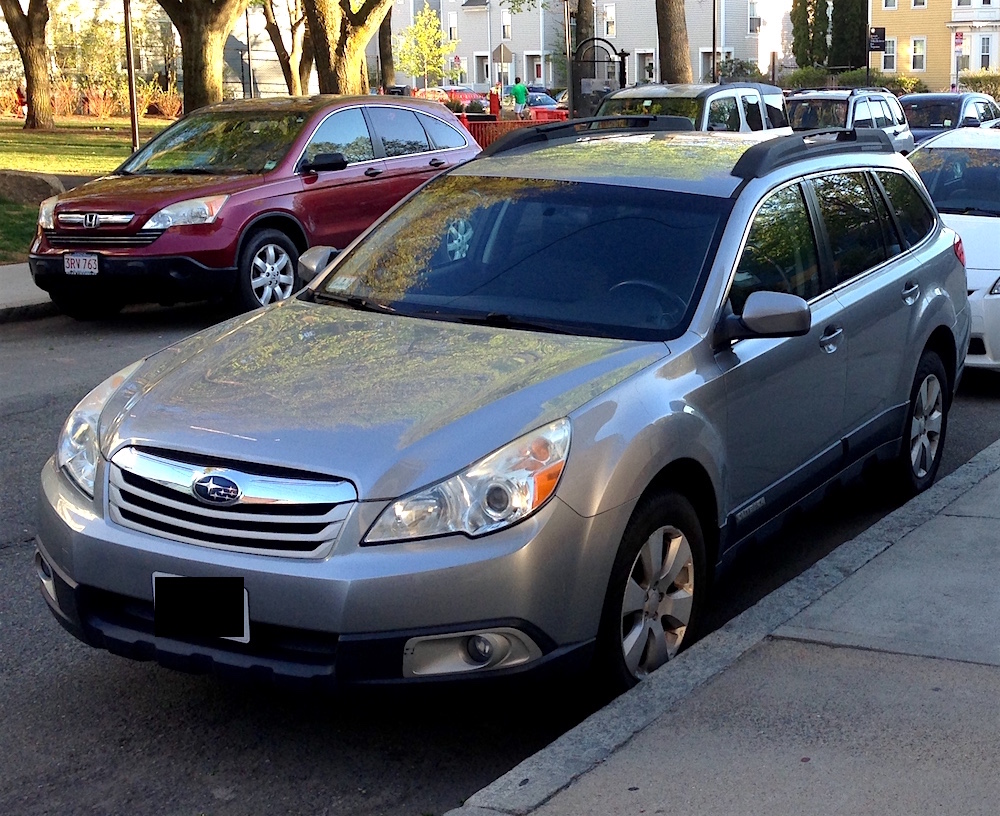
In addition to saving a whopping $31,808 on both cars, we also deployed that money in a vastly more effective way: we invested it. The opportunity cost of buying new cars is profound–even if you pay cash and avoid a loan. Here’s why:
The $31,808 we saved by not buying new cars, if invested in the stock market for 30 years, will yield $242,130 (based on a 7% annual rate of return, which is considered average over decades of investing). I don’t know about you, but I’d rather drive six-year-old cars and have $242K in 30 years. Just saying.
Even if Mr. FW and I need to buy another set of used cars in, say, ten years? We’ll still spend less overall than we would’ve had we bought brand new cars in 2016 for the simple fact of how egregiously marked-up new cars are. Same goes for any repairs these two vehicles might need–we’re never going to spend anywhere near the $31,808 we saved by buying used.
How To Find Your Very Own Used Car!
Ok Mrs. Frugalwoods, you say, we get it! But just how exactly should I go about finding the used car of my dreams? I’m so glad you asked because I’m on a roll today. Here are the questions to ask yourself and your significant other before embarking on a car purchasing trip:
1) Do you need a car at all?

For years, Mr. FW and I lived in cities (NYC, Cambridge, Washington, DC) without a car. We used ZipCar when we needed to drive somewhere and otherwise, we walked, biked, and rode public transit. If you live in an urban area and are able to skate by sans car, milk it for as long as you possibly can.
Cars are convenient, but they’re money pits. In addition to the purchase price, there’s insurance, taxes, gas, repairs and maintenance, parking, tolls… need I go on?
2) Get a car that matches your lifestyle.
If you do need a car, be sure that you’re calibrating car ownership to your needs and your lifestyle. For example, can you get by with just one car for your family? Or do you require two? We don’t all have the same lifestyle or live in the same climate or use our cars in the same way. Identify what you need a car for and only buy as much car as you need.
If you’re single? Probably don’t need an SUV or minivan. If you have five kids? Probably not going to cram them all into a two-door coupe. And if you do have kids, make sure that a carseat(s) fits in the back of any prospective cars (this is how Mr. FW and I eliminated a number of truck models that can’t safely accommodate carseats).
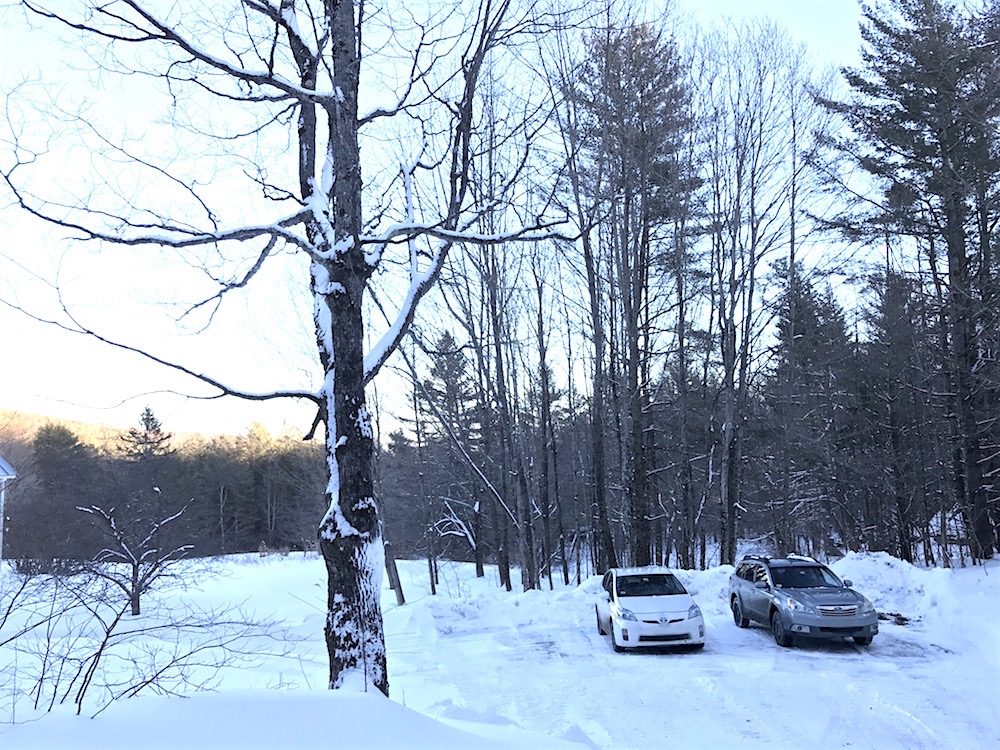
Remember too that you can change your mind about what kind of car you need as the years go by.
Don’t buy a car for where you think you’ll be in 10 years. Buy the car you need now and then sell that car and buy a different one in 10 years if you need to.
Mr. FW and I went carless for years, then got one car for the two of us, and now we’re a two car family. Before moving to the country, we knew we’d need two vehicles owing to the absence of walkability and public transit–a minor drawback to living on 66 acres in the middle of nowhere. We also knew we’d need at least one car with all-wheel drive and that both cars should be as fuel efficient as possible since we drive long distances. Conversely, if we still lived in the city, we would’ve purchased one smaller, fuel efficient car without all-wheel drive (likely a Honda Fit).
3) Research, research, research.
Some cars are better than other cars. Not being judgmental here, just being honest. Do your research and figure out what’ll work best for your needs. In general and over the years, I’ve found Toyotas, Hondas, and Subarus to be quite reliable and cost efficient.
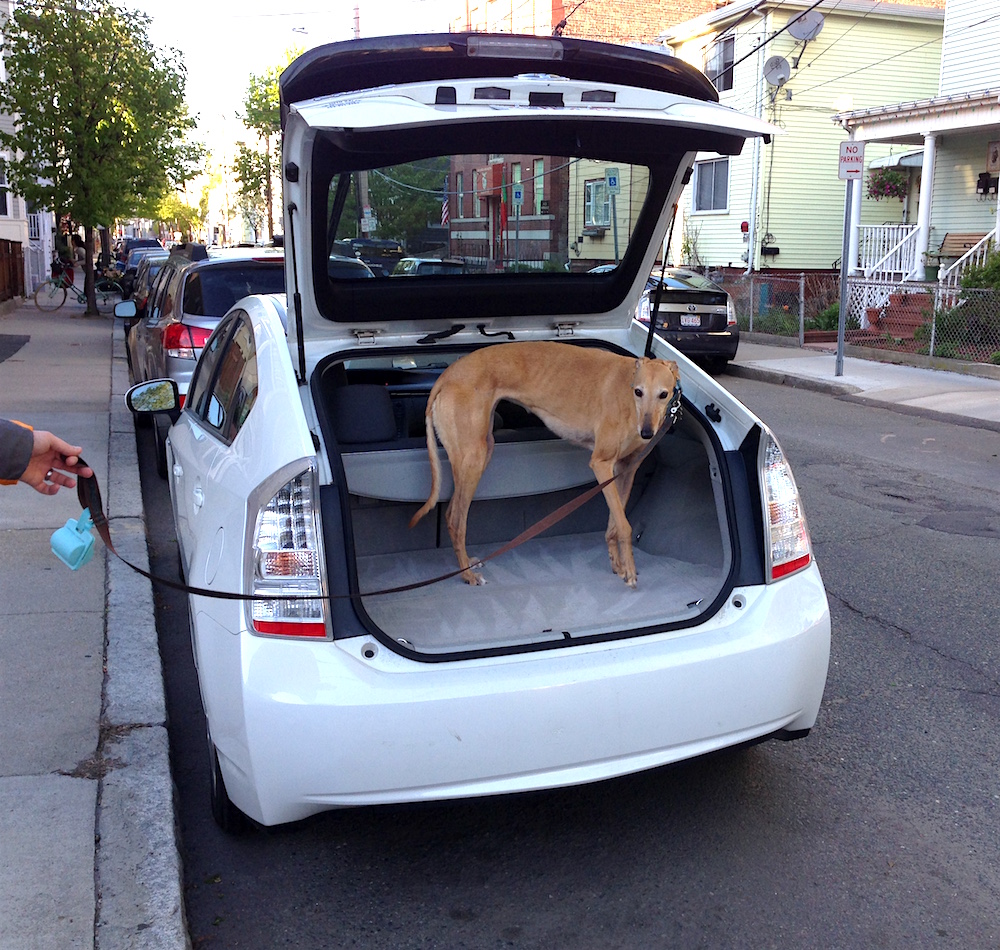
It seems that the sweet spot for used cars is when they’re about five to six years old, but you’ll have to do your own research on the models you’re interested in. Be wise to what years are best for the make and model you want–don’t assume that a 2009 and a 2010 will have the same features.
We used CarGurus as a resource and found their market value search very useful as well as their graphs tracking depreciation over time. Additionally, we read Craigslist car ads for years before we bought–we knew we’d need to replace our aging minivan at some point, so we casually gathered market research by scrolling Craigslist. I recommend doing this for as long a period of time as you can before buying so that you have a robust sense of the used market for the make, model, and year you’re interested in.
This longterm research is akin to my strategy of going to tons of open houses before putting in an offer. This way, when you’re finally ready to write a check, you’re confident you’re getting a good deal and you know you’ve selected the make, model, and year that’ll work best for you.
4) Start saving money now.
Don’t wait until the month you need a new-to-you car to start saving for the purchase. Maintain an ongoing savings regime for all of your future car needs, including repairs, maintence, insurance, etc. It’s not an emergency when a car breaks down–it’s an anticipated expense associated with car ownership, so be prepared.
Wondering how to save enough money to buy a used car with cash? Take my (totally free!) Uber Frugal Month Challenge, which will guide you through the steps Mr. FW and I took to bump our savings rate to up over 75%. Over 12,000 fellow frugal sojourners have already taken the Challenge and saved thousands of dollars.
5) Test drive!
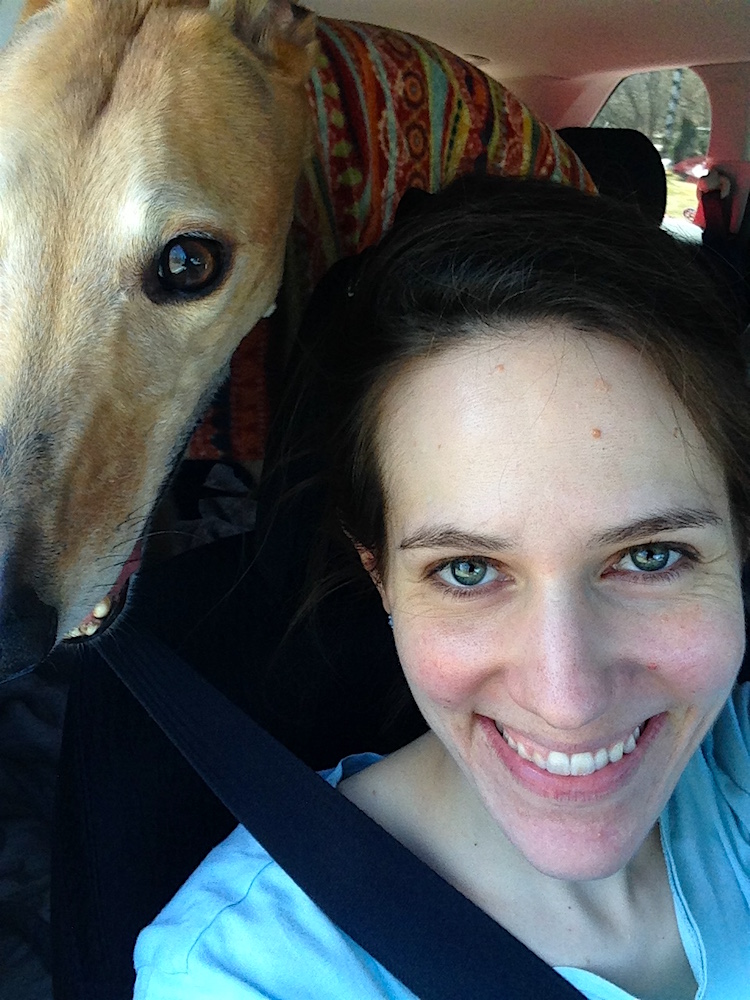
Be sure to test drive any car you’re considering purchasing and try to drive it under different conditions (stop and go city traffic, highway speeds, dirt roads, etc). Test out your whole family in the car too–do the carseats fit? Is there room for the dog?
We took Babywoods with us on our test drives so that we could make sure her carseat fit and that it wasn’t too difficult to get her in and out. Look for any unnatural wear and tear on the car, look underneath the car to see if anything’s leaking, make sure the windows, locks, doors, heat, AC, radio, and lights work properly.
Ride in the backseat too–this is how we discovered that one of the used Priuses we test drove had almost certainly been used as an Uber or Lyft car–the back seat was excessively worn out (not to mention that the mileage was unusually high).
6) Know your state’s lemon law.
States have laws governing the sale of defective used cars, called lemon laws, and there’s usually a limited time period after the purchase in which to bring a grievance. Find out what your state’s lemon laws are before buying a used car.
Used Cars Save You Money On Insurance
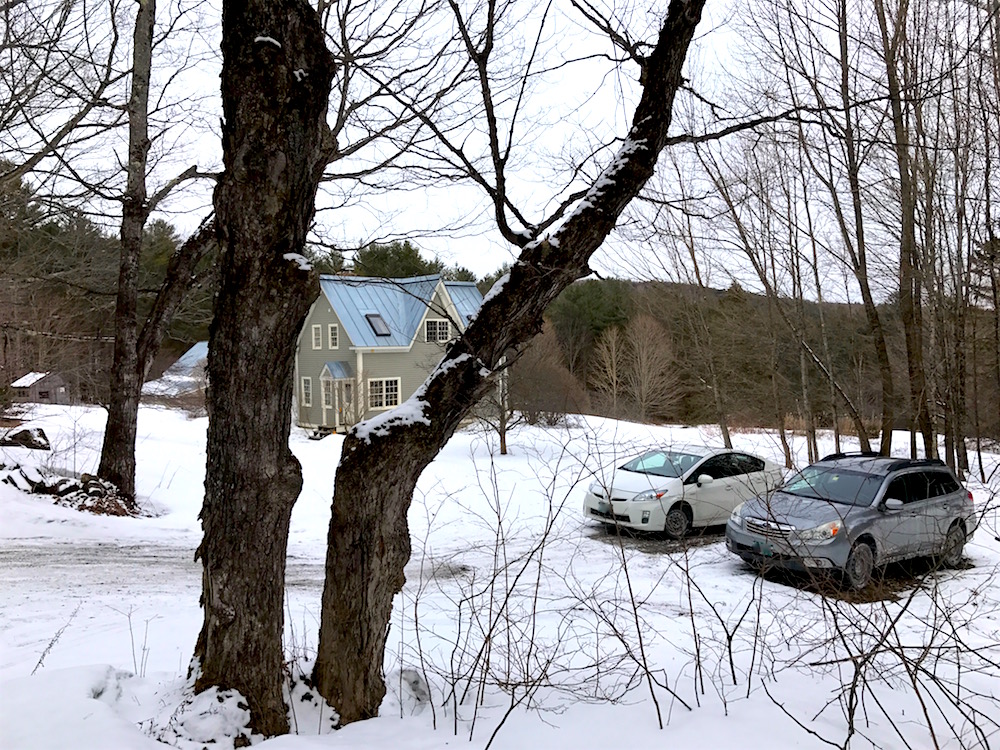
If you drive an inexpensive used car, don’t have a car loan, and have a nice emergency fund saved up, you probably don’t need comprehensive car insurance. Why? Because comprehensive insurance pays to replace your car. And if you have an inexpensive car and enough money in the bank to easily buy another (used) car if you had to, there’s no reason to pay for insurance because you’re effectively self-insured. For this reason, we don’t carry comprehensive insurance. For more on how we manage our money, check this out.
In general, insurance exists to cover rare events that you wouldn’t be able to pay for on your own. But if you could replace a vehicle without facing financial distress, then comprehensive insurance is a waste of money because you’re paying the insurance company for the possibility that they might need to buy you a new car when you’re perfectly able to pay for the car yourself. In addition to self-insuring against the possibility of needing to buy new cars, we also pay out of pocket to replace things like cracked windshields. Our Subaru’s windshield cracked last year and we paid $265 cash to have it replaced. Cheaper than if we paid for comprehensive insurance. This is yet another way in which frugality saves you money every month. It’s also a great example of the virtuous cycle of frugality: the less you spend, the more you save, and the more you have saved up, the less you need to spend.
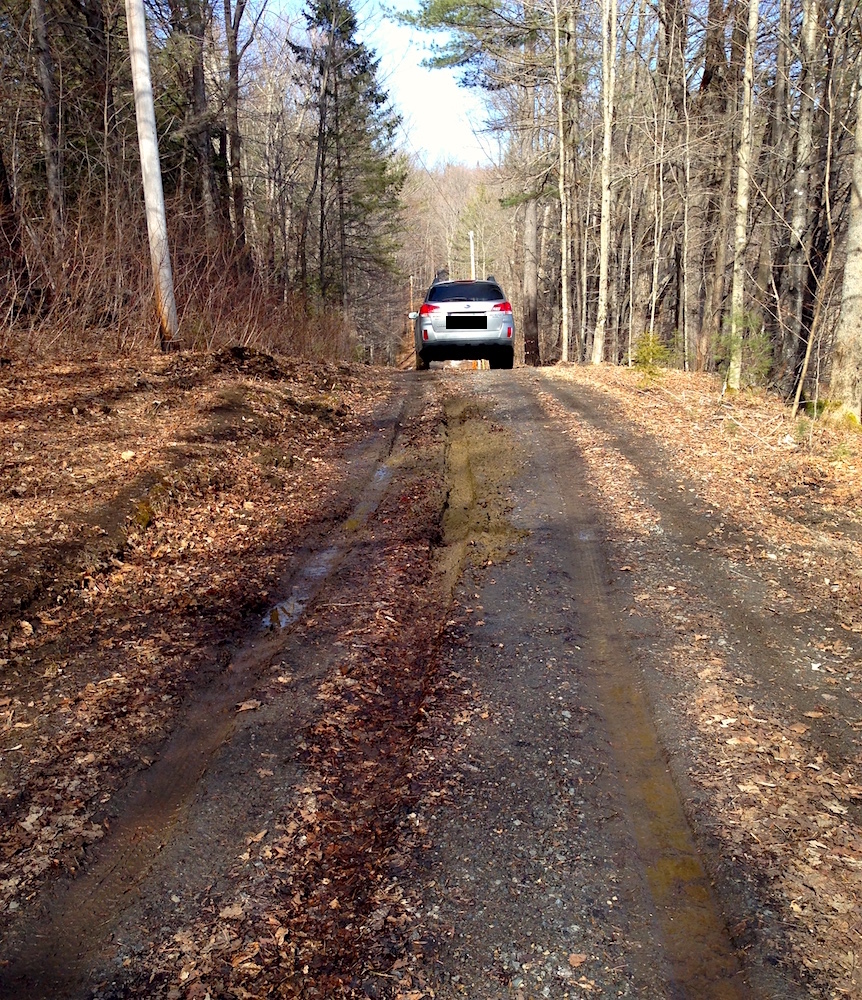
On the other hand, it is incredibly important to carry more than the minimum required in liability insurance. The reason is that liability insures you against more expensive events that you likely wouldn’t be able to cover out of pocket. If you were found at fault in an accident and the other person was injured, your expenses could spiral into the millions of dollars. And the liability minimums set by most states are ridiculously low and often wouldn’t cover the cost of someone going to the ER to get a headache checked out. For this reason, we feel it’s imperative to purchase a large amount of liability. We carry the maximum that Geico allows in liability ($1M per person), which costs us $628 per year for both people for both cars. That’s all we pay in car insurance full stop.
In summary: we do not carry comprehensive because we could easily replace both of our cars (in full with cash) if we needed to. However, we carry the maximum in liability coverage because we feel that with healthcare costs as they are, the risk of a large liability claim is one we don’t want to self-insure against.
The Bliss Of A Used Car: Who Cares What It Looks Like (nobody)
Dings and dents? No problem! Mistakes and accidents are bound to happen. You accidentally scrape a barrier in a parking garage. Someone opens their car door into yours in a parking lot. Acorns/squirrels fall out of a tree and dent your hood.
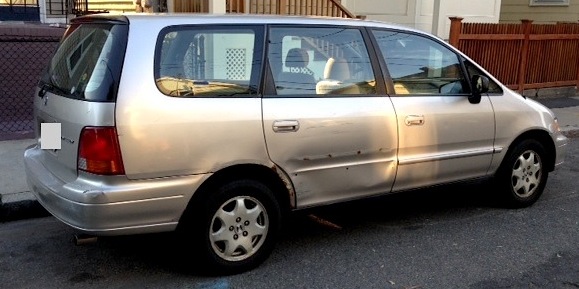
Any number of low-grade maladies can occur to your used car and you don’t have to sweat it. Since you’ve already accepted that your car is not a status symbol, and is not perfection incarnate, you’ll save thousands of dollars by not fixing dents, dings, scratches, and scrapes.
The caveat here is if the repair would prevent significant rust damage. In that case, you’re probably wise to do it, unless the car is so old that it’s likely to die a natural death before rust eats it. Cosmetic fixes to cars aren’t required, aren’t necessary, and are usually a giant waste of money.
Final Thoughts
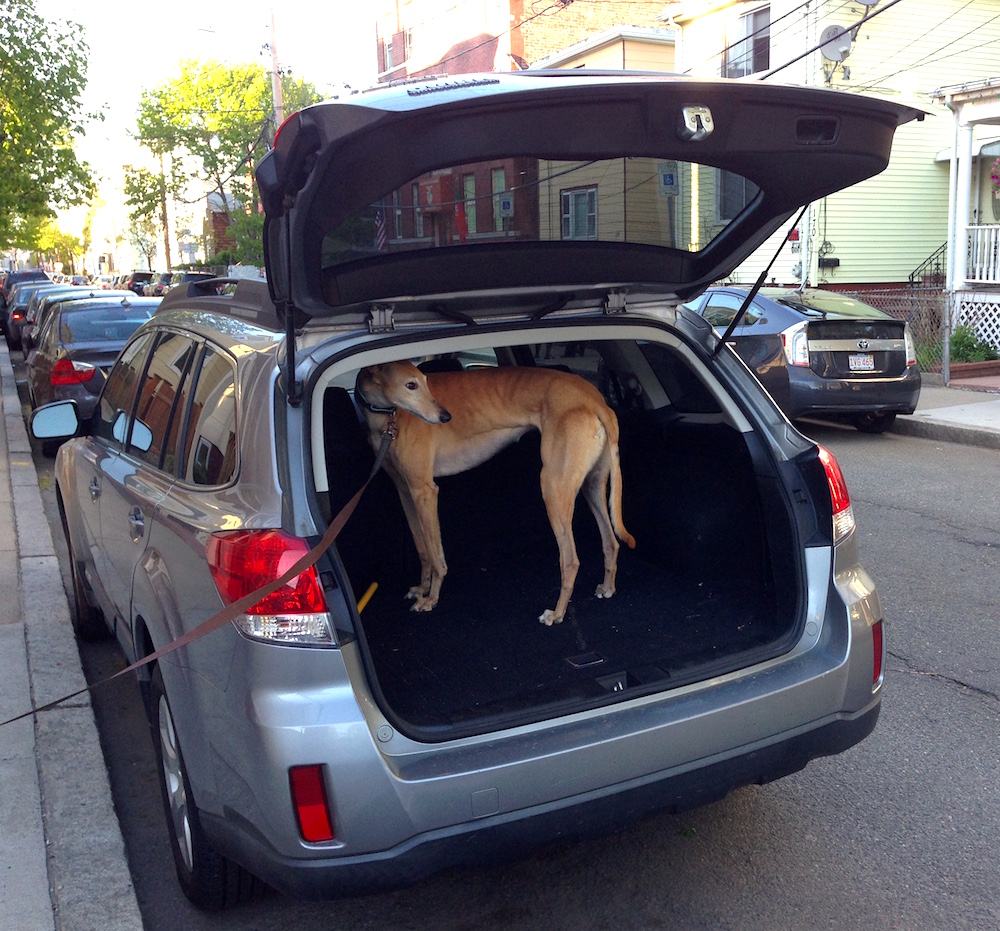
Our consumer culture has normalized car loans. It’s seen as a perfectly reasonable and acceptable part of life to tack a car loan onto any other debt we might have. But it’s not.
Don’t drag yourself down with debt over a vehicle that you could instead pay cash for and be done with. If you have a car loan right now, don’t beat yourself up. Pay it off and prioritize putting aside enough in savings to buy your future car used.
Don’t fall victim to the insidious marketing that says you need a new car in order to be safe, look successful, be popular, or feel good about yourself. You know that’s not true and you know a car won’t do any of those things for you. By instead prioritizing the freedom that financial independence brings, you just might find you feel quite good about yourself indeed, no matter what kind of car you drive.


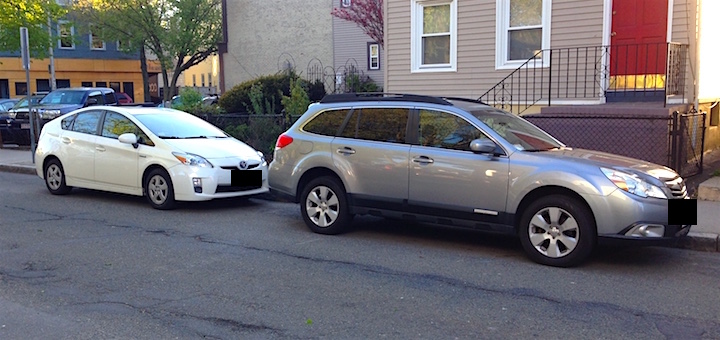
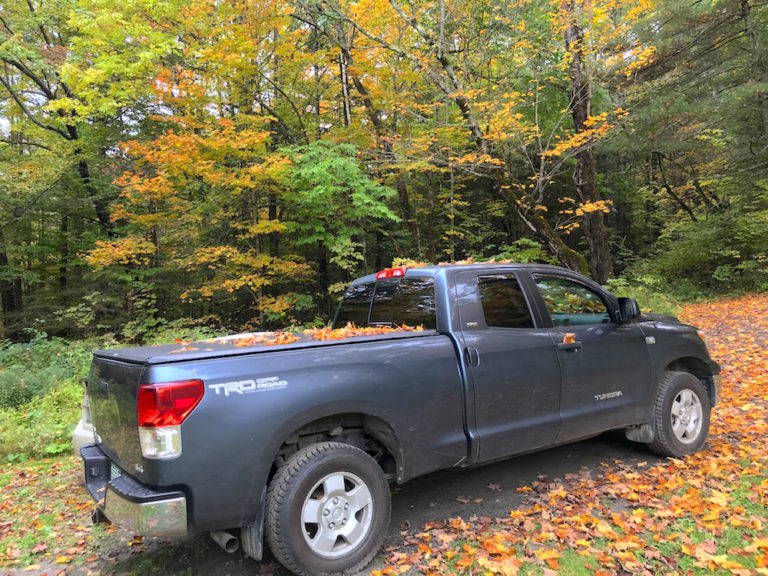
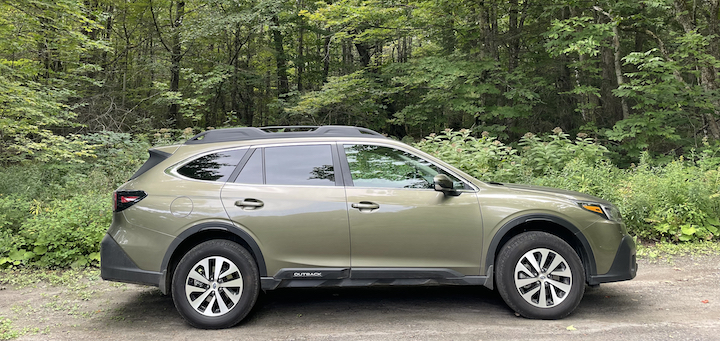
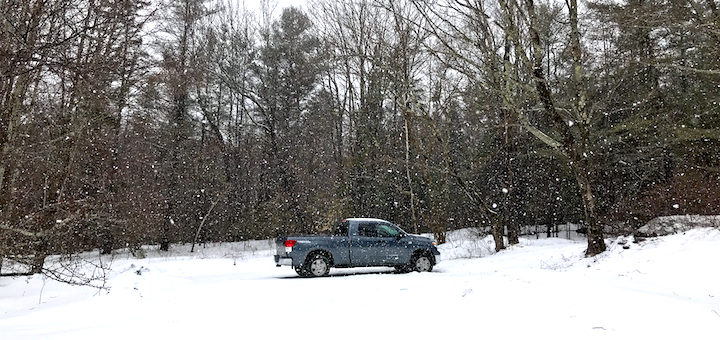
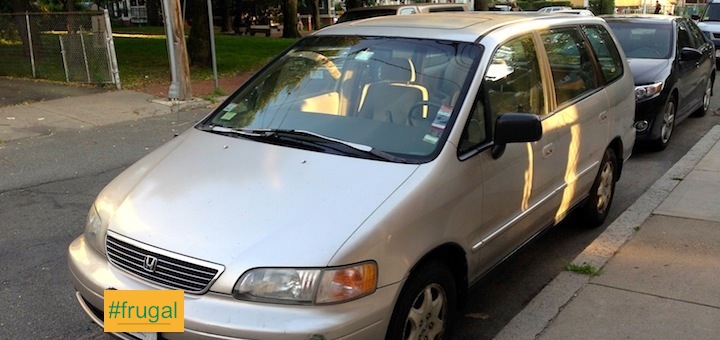
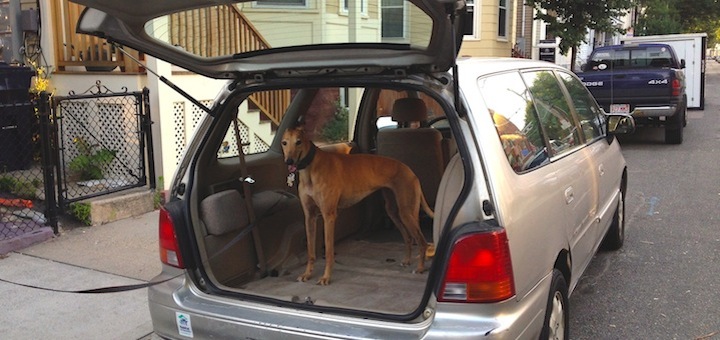
Yes, this is one of the decisions that really hold people back financially. It is crazy how much we have come to ‘care’ about what we drive!
We just had to upgrade our car since we outgrew it. We sold the one we drove for 3 years for just a little MORE than we bought it for ….. it is possible. Thanks for sharing this, people need it!
Agreed. New cars are a huge money pit! I’m starting to look into replacing my 17 year old Hyundai Tiburon.
I’m curious, what car were you able to sell for more than you paid for?
Thank you for all of these tips! We actually share a car with my parents-in-law, which cuts our bill in half. Another way to be frugal ☺
Thanks for sharing the great tips! Mr. FAF and I bought a new car at the request/suggestion of his dad. We paid it off 6 months later. But we have agreed to look at used cars first next time. Sometimes I just wonder how much we could have saved on the vehicle if we had bought it used. Oh well, I guess we learn and grow every day.
We always had any used cars we were considering buying checked by a mechanic. Saved us from poor decisions. We accepted the cost as part of the price of purchasing a car.
Build a relationship with your mechanic (at a small/local shop) and they will usually do it for free/low cost. They know they will get the business from you in the future! 🙂 My husband worked at a small shop and always checked them for people. People used to always drop off baked goods and one person always made them turkey pot pie after Thanksgiving. An extremely frugal but so appreciated gift! He always looked forward to the Monday after Thanksgiving because of that customer! Mechanics can get a bad rap but if you find a shop you like, they will take care of you.
I can’t second this enough! I have a great relationship with my mechanic and he has advised me on all of my used car purchases, including checking them out for free. I would never buy a used car without having him check it out first.
For all those who want to buy a used car, remember…someone has to buy it new in the first place. The fewer people who buy new, the fewer used ones available which, as in any supply and demand situation, will push up the price. For those who don’t have savings that can be utilised, and have to buy on a finance scheme, a new car on a four year lease (you effectively rent it rather than buy) the repayments can be lower than a bank loan. We are looking at replacing out car soon. The same model comparison is a 2017 new version leased for £197 (UK) per month for 4 years against a four year old one bought via an interest-bearing bank loan at £183 per month over 4 years. The difference is not very great and the used car is more likely to incur repair costs.
We ran into this situation when purchasing a car for me. We ended up purchasing new since the used cars were a few thousand cheaper (and they had 60k+ mileage). Plus, I would be driving a lot for work. We also financed since the interest rate was soooo low, even though we could have paid cash. I keep getting flyers in the mail from the dealer asking to buy my car because they have no used inventory. My car is fine and I won’t be doing this, but this shows your point about people driving cars longer.
The reason the lease is “less” is because at the end you have … nothing! The dealer gets the car back, plus any overcharges for you driving more than the pittance they allot. I’d take the 4 year old car any day! At the end you have a car … with value … and no more payments.
This is completely right!! The situation isn’t comparable at all – because at the end of the 4 year loan term, you get the car! At the end of a lease, you have to continue paying to re-lease something. The savings on the payment differential ($14 x 12 months x 4 years) is 672, which nets you A CAR at the end of the term.
Moral of the story – don’t lease a car.
But a car that is already a few years old, plus another 4 years at the end of the loan is not worth much at all. Add to that the cost paid out on repairs and maintenance (which is included with the lease car) and the figures start to look very similar. My friend just got £1,000 for her six year old car. She estimates she spent £880 on repairs during the past three years. Our current car was second hand, but having costed it out, we will be leasing new next time, no doubt at all.
I know this is old, but I can’t resist. I worked at a car dealer at one point in my life. The lease was considered by my co-workers a license to steal. You are much better off buying a used car, even if you need a loan to do so.
And put some thought into which cars you buy. If you buy good Japanese cars they last forever and hold their value really well (at least in the case of Toyota and Honda…I never bothered with the other makes.)
Then she just got a bad car or didn’t take care of it. We’ve had our 12 yr old Kia for 4 years and other than a tire after we ran over a nail we’ve had zero repairs. A $20 oil change every few months is nothing compared to the thousands we’ve saved over leasing and we still have a great car! If we had leased new vs buying with cash we’d have spent twice as much by this point and would have nothing to show for it. We’ve also had an 11 yr old Toyota for a few years and again, zero repairs. Not to mention what we’ve saved on insurance.
I don’t think there’ll be a shortage of used car stock. People buying new cars has steadily risen. What’s also bad on a collective scale is the huge amount of people that will be retiring without any savings.
I completely agree. I just bought a 2.5 year old hatchback for half the price of the same car new. And it’s still under warranty. I also got a mechanic to check it out before hand, as I prefer to play it safe, and it can help with negotiating (didn’t in my case, as it had no problems!).
I think people also buy larger cars than they need 99% of the time. I still have trouble doing this myself, but the cost of hiring a van the one time a year that I need one is so much less than running a larger car.
I bought a 2008 hatchback Toyota Yaris when I was 17 with money I had from a part time job at a bakery. It was 3 years old at the time. It kept its value and even went up for some years in value, since gas prices spiked from around $3 to $4 about a month after I bought it. Now that gas is lower, it went back down in value but at this point, I’ve had it for 6 years with no major issues. The serpentine belt needed adjusted a few times. That’s all. I hope I will never need another car! Even though it’s a tiny car, it can move more than my friends’ full size sedans with the seats down. I’ve moved an entire dining table, bookshelves, steelcase chairs to furnish my whole house for less than $1k.
I have an honest question: how in the heck did you manage to find a car that young for such a good price? Any time I look at Toyotas in my area, the used ones are only a couple of thousand dollars less than new (example: $14K used instead of $18K new), unless you start looking at cars that are getting up there in years and/or mileage. I personally don’t care what my car looks like, but older cars start to get problematic in that I live in an area that salts extensively in the winter and it starts to corrode our cars after about a decade. Honestly, if I’m going to spend $14K on a three year old car with 50,000 miles, I’d almost rather toss in the extra $4K and get it new so that I don’t have to wonder how well the previous owner cared for it.
I bought my car new, but I would not do that again for all the reasons you stated. It was also a five year loan, but I paid it off early. I won’t do that again, either. I want a three year loan or nothing (which is unlikely for me). I haven’t paid a car loan in three years now, and I don’t want to start! I’ll drive it until it literally falls apart. I’m hoping not to buy replacement car at all, if this one lasts until my kids are out of carseats, because I live in DC and there are other options. Living in the city (and street parking) has made me care less and less about cars, especially as a status symbol. I swear there is a new dent or scratch on my car when I wake up every morning.
So true about the dents and scratches with city street parking! Back in Cambridge our minivan seemed to have a new ding every single day–but we didn’t sweat it.
Glad to see you bought snow tires for the Prius. There are tons of studies that suggest (prove) a front wheel drive car with snow tires will outperform an AWD with all season tires in the snow. For most people who live in snowy climes with reasonable plowing done by the municipalities, the $500 spend on snow tires can save you thousands by not purchasing AWD. My front wheel drive VW wagon easily went through 6 inches of unplowed snow last winter. The AWD is practically worthless with all season tires IMO.
You are so right about snow tires–they’re amazing! There are still some times when we can’t get out of the driveway in the Prius and need the AWD Subaru, but more often than not, the Prius in snows does great.
There are some safety features that you can really only get in new or newer cars. Back up cameras chief among them. I just got a new SUV for the first time in years and really appreciate the back-up camera. My new car also has blind spot detection which is a huge help in highway driving. I’m still an advocate of driving cars as long as possible, and of course you can still get a slightly used car, but I think it’s fair to say that the newest cars have some safety features that say a 2010 car is not going to have.
Actually, you’d be surprised how long they were around! My mom’s car is a pre-2009 Volvo with a backup alert sensor. My brother has a 2011 Subaru with a backup camera and my 2010 Subaru has the option to install one (but I got a lower model that doesn’t have it).
Backup cameras are also a few hundred dollars to install (same with remote start) but if you buy a used car from a dealer, they are required to remove any after-market parts. A autobody or auto-stereo shop (we surprisingly have one right by us!) can install it on a used car for you! 🙂
I don’t think either back up cameras or blind spot detection are safety features. Blind spot checking should be automatic for any driver. These are the type of features I think the blog is talking about; ways to justify a new car to yourself. If you really care about those features and are prepared to pay for them then great, but they’re features that make driving easier for you, they’re not safety features.
Right, can you just …. look behind you???
We had a 2005 Prius with no backup camera. I would say it is a safety feature in that car and insisted we get a camera for the next car when we replaced it in 2016. The back window is high, and anything short (kids, pets) is not visible when you back up. Since the car backs up silently on the electric motor, people in parking lots may not be aware you’re moving and get in a bad position.
My 2007 Prius came equipped with a backup camera. At 200,000+ miles still running great. Plus since it was my Dad’s car that he bought new I know how well it was cared for and it has a ton of sentimental value. We will be driving it until it dies 🙂
My 2010 Hyundai Tucson has a backup camera, and is quite safe and reliable. Bought used too.
Back up cameras have been around for at least 12 years. I know because my friend’s mom had one when I was in high school and I graduated 12 years ago! I also remember that it didn’t help one bit as she still backed us into a huge ditch in the literal middle of nowhere and we had to walk for miles to the nearest home for help since cell phones don’t work out there. In snow, wearing high heels and with an empty stomach! Good times!
If you buy a used car with a double-sized radio, you can replace the factory radio with a aftermarket unit that can accommodate a backup camera. On my Subaru Impreza, I am using an Eclipse AVN-4430 stereo I purchased used for $100. It has built-in navigation and my backup camera, purchased for $30, runs on an auxiliary video input. The factory NAV unit, which would have added $1000 to this 2013 model, was not nearly as good as this Eclipse.
Another tip is to get your *trusted* mechanic to check out your used car before you buy. This saved my friend from buying a car that was due for lots of work.
Great post as always.
I have to chuckle reading this post since my husband brought home our new-to-us car on monday. My husband really does drive cars into the ground before purchasing another. For the last year I had been threatening that he wouldn’t be allowed to drive the car pool any longer if he didn’t get a “new” car soon. I was worried for the kids’ safety (hmmmm, I wonder if no car pool duties was why he delayed!?).
I also wholeheartedly agree with the snow tires. As someone living in Canada, it is less about cost savings, though there is that, and more about keeping safe.
My husband and I have been married for almost 25 years and have bought a handful of cars over the years. We bought one new – our first in our first year of marriage – before we knew better. We drove that car, a Carolla, for about 11 years before handing it off to my brother who drove it for a few more. Since then we have only ever purchased pre-owned vehicles, in cash – usually Hondas, but most recently a meticulously maintained, pretty darn sexy, pre-owned BMW for my husband (a frugal mid-life crisis?).
We have been looking at possibly purchasing electric in the future. We have been advised that in the case of electric, purchasing new is advised because of battery issues. I haven’t yet done the research since this purchase would still be a few years off. Perhaps a future article?
It seems that most electric vehicles get 200k miles or more before the batteries significantly degrade especially if you avoid models that have bad temperature management such as the leaf.
A few notes – excellent car recommendations. My husband is a former mechanic and loves all of those brands. We have a 2010 Forester and ADORE it but there is an issue with oil leakage on newer Forester. My brother has a 2012 and already had to replace the engine – which Subaru covered but it was a hassle and required a lot of fighting with them. It’s definitely damaged their reputation for me BUT I would probably buy another one. I’ve been in several accidents (most not my fault!) and my Subaru always looks better than the car that hit me.
However, based on the used car market, certain cars are very hard to get used as they are so popular. Volvos are almost impossible to find coming off lease these days so a newer car can be cheaper than a used one if you get a good deal at the dealer. Volvos are also luxury cars so buy that Honda/Toyota in the mean time!
If you have a good mechanic, they can also fix many dings and scrapes by buffing them out or popping them out, usually for little to no cost. My husband enjoys using zip ties to re-attach our friend’s bumpers – as bumpers are required to be attached for inspection in our state. Pro tip: zip ties cost $5 for what seems like a zillion of them.
When we bought my husband’s car (a pickup truck we got with a plow, below KBB value, and less than half of new), we got a 1.5% interest rate so we’re choosing to boost our retirement savings rather than pay off the loan faster. I’m hoping the average 7% loans + time will offset the low interest rate.
If you can also afford it, consider taking the time to shop around and selling your car after when it’s “in season”. Plow trucks and AWD cars are way cheaper in the spring and summer, then the prices go way up in the winter. Same thing with convertibles/vintage cars where they go up in the spring/summer and drop in the winter. Parents also tend to look for “high school”/”first” cars in the spring/summer and you can sell your $1k car easier then.
Thank you for all these notes, Nora! Great advice! And what a good idea to sell cars “in season”–totally makes sense 🙂
We have never had a car loan. Most of our cars were bought new, and driven until there were real reasons to get rid of them. Hubby thinks cars should last at least 10 years or 100,000 miles, whichever comes second.
The history is below, but based on our experience with the 2003 Civic, it is likely our next car will be bought used. I have to point out, though, that I think the key to making this work is to be very picky about what you buy, and also that you are mostly relying on the stupidity of others in getting rid of perfectly good cars.
I drove the 1969 Chevy Nova my parents bought for me (new) when I started college and was living at home, until it was 19 years old and had some serious problems.. Hubby, when we got married, had a bought-used Buick Skylark, which had some issues.
We drove a 1978 Honda Accord, which we bought new, for 9 years until it had a broken strut, needed brakes and had some serious rusting out issues, and I think had just under 100,000 miles on it. Note that rustproofing has gotten a lot better since these 2 vehicles.
We had a Chevy pickup (I think we traded the Nova in for it) for about 10 years. I don’t remember the details, but it was during the initial landscaping work on our house which sat in what had been cornfield, and I was its daily driver.
We had a Chrysler AWD van (bought new) which was essentially aging out of parts availability, and it was the extended wheel-base model and was having some drive train issues. Even used parts became hard to get as they didn’t sell too many of these. I think it was jabout 200,000 miles.
We had a Mazda 626 (bought new) that was 12 years old and had 176,000 miles when we traded it in on a new 2010 Honda Accord. My husband didn’t think I should be driving a stick when I started a new job and would be driving through city traffic which I hadn’t much previously. Our daughter is still driving the Accord, having used it during high school and college, and she has now started her first engineering job out of school. It has something over 200,000 on it, and is still going. The Accord has only had one major issue – after driving daughter to the airport in it and leaving to head home – the brakes went out on it, and we replaced all the corroded brake lines. People keep asking her when she’s going to buy a new car, and she responds by saying there is nothing wrong with the one she has.
We bought a 7-year-old used 2003 Honda Civic for me to drive to work when we turned the Accord over to our daughter when she was still in high school. About 157,000 miles now on it and still going. I found this one on the way home from work in the Accord, parked on the street with a “For Sale” sign on it. The owner had bought it new, and they were having a baby and taking over one of the grandparent’s van, so were selling the Civic.
We also have a 2010 Subaru Forester (bought new) that has (I think – I don’t usually drive it) about 160,000 on it.
I forgot to add – the real travesty of new cars is the number of people that buy a new car every couple of years. Just because.
Also when we bought the Civic, they gave us the ENTIRE service history with the local dealership with it, which we could verify.
Also, new or used – YOU HAVE TO MAINTAIN THEM. We historically have done a lot of driving for work/family/college/vacation, and this is the key to not being stuck someplace with a vehicle you can’t drive. (That is excluding things like deer strikes – the Accord has had 4, the Subaru has had 1.) Also try to hose off salt when the weather and temperatures allow.
I agree, regretfully. Two years ago, I allowed myself to be lulled into a shiny new $35k car. I protested for awhile, but eventually, my protests resembled those of someone being talked into “just 1 more” at a party…. “ok, twist my arm!”. So, I take full responsibility for the poor choice. To make matters worse, literally, before we made the first payment, my company announced they were shutting down and I lost my job 3 months later. I am working, but my pay has been drastically slashed, making this car payment very heavy indeed.
Fast forward to today… We are newbies to the FW community, and loving it, and making changes, and it feels GOOD!!! We are attacking debt, changing our spending habits completely, and cash poor. My car payments feel like the elephant in the room. Unfortunately, I think we are upside down on value, by about $4k. We talked about trading it in to lease a car, and reduce our payment by 50 to 75%. But then we think… we’re this far into it, perhaps we should just keep going rather than make a bad situation worse. It’s a 2015 Ford Escape, Titanium model, 30k miles. It’s been great, and is in excellent shape. Our payments are $498/month. (can’t say $500, and yes, I’m hanging my soon to be frugal head in shame!!!) Anybody have any thoughts? I’m in sales, and need to drive to appointments quite a bit. That sums up my true car needs. Thank you.
New here to the the FW/minimalist community as well. I’m in a similar situation. In getting my first car, I was talked into leasing a 2015 Subaru Impreza Hatchback. The lease is 36 months and I’m about 18 months in. The car is beyond great but I just don’t need a new car – all I really care for is AWD to get to/from the mountains in Colorado- the hatchback feature has been very helpful for my bike. My buyout + remaining payments amount to about $17,500 to be paid to the dealer. The car’s average sale value in the area for my current mileage and model is about $19,000. I’m assuming I would just about break even if I include the tax on sales if I were to sell it. My plan was to sell it, use the amount for a buyout from the dealer, get a lighter bike for my 15 mile commute to work (buses are unavailable), hope my friends are willing to scoop me up on the way to camping/hiking/climbing/biking weekends, and save save save to fully purchase a used car. Due to other unexpected expenses in my life, my savings this month are now down to a hair – hence I’ve been forced to take a good look at my monthly expenses and what brings value to my life. I’m wondering… now that I’m this far along and have already driven the new car off the lot if its worth selling and then saving for a similar AWD car, any older make/model, under $10,000? Or should I continue the lease and upon 36 months, purchase a used car? For those of you experienced in leasing/purchasing, what other questions do I need to research to make this a practical, least penalizing, informed, and financially smart move? Thanks in advance – lost and confused.
Why not look on KBB.com or Edmunds.com and find out the true value of your Ford Escape? Then you’ll have a better idea of what to do. Also, leasing can have tax implications, especially where you drive a lot for work. Talk to a tax professional. Get ALL the facts — it isn’t as easy as “should I lease or should I buy” anymore.
FWIW, The Escape has a good reputation for reliability and safety. If you truly can’t decide what to do, just keep the car. Maybe add $25 a month to pay it off sooner. Keep it well-maintained and stay on the path of frugality. Whatever you do, don’t waste time blaming and shaming yourself. You made your decision based on the facts you had at the time.
Don’t lease, you’ll end up with no car and having to buy something at the end. Stick it out if at all possible financially and then keep the car with no payment – save the payment amount and you will be able to pay cash next time.
Karen, I know you are two years in to the loan, and you are upside down in the car, but how much time do you have left on the loan? For me the question is how much will you save on interest if you trade it in for a less expensive car. There’s also the lost opportunity. You might end up ahead by trading it for a less expensive car by saving on interest, and you might have money left over with the smaller payment that you could invest and earn interest on. I know that’s a lot of math, but there are some great online calculators that will do it for you. To me that would give you the answer as to what will save you the most money.
I’ve only bought two cars in my life and both were used. I currently don’t even own a car and share my fiancee’s 2010 vehicle with her. If we decide we need two cars eventually I’d probably buy a used Prius for cash (under $10,000).
We love our used Prius and it’s amazing how little we spend in gas!
Also consider EREVs (extended range electric vehicles) being able to drive on pure electric for a large percentage of trips is about half the cost of gasoline, plus there is much less maintenance. My car has 90,000 miles on it, but only about 20,000 on gas; thus it is only on its 3rd oil change and the motor is still nearly new. There are new varieties coming out daily; Honda just released the Clarity, Hyundai has one out soon, and used Volts are getting inexpensive and have a great reliability rating.
Another benefit is that most of the “fuel” we use is generated from our solar array…
All if the cars you mention in this article have one thing in common : a nice low Total Cost of Ownership, which is really the goal here.
Hi, thanks for this article it came at just the right time I am visiting my mom in Michigan up from NC and my 2002 Subaru has a blown head gasket I paid 1,900 for the car last February put another 1,400 in it and am now carless. My husband wants me to get a car with a payment. I don’t want a car payment and will just start saving like I have one. Unfortunately I do not have a large savings as I just payed off my credit cards and have just started being frugal. But that’s ok I have to start somewhere and I don’t want a car payment I will just take your advice and shop around better for a better used car. As for now I have a Honda metropolitan scooter I can ride and a few bikes and we do have one car also I can always rent a car for my long trips my only disappointment is I love hiking and kayaking and now I have no way to transport my kayak or do my day trips while my husband is at work since he doesn’t enjoy going. But this too will pass and it’s not worth a car debt. Thanks for your encouragement. Have a great day
I agree completely! We love Hondas and Toyotas and currently own a 2009 Toyota Camry Hybrid and a 2010 Toyota Yaris hatchback. We were able to pay cash for the Yaris when we bought it in 2013 and had to take out a car loan for the Camry when we bought it in 2015. We paid off the car loan a few months ago (woo hoo!!) and plan on making our cars work for us as long as possible – both cars have just over 100,000 miles on them, which is nothing considering the longevity of Toyotas. I think the only reason we would trade one of the them in for something else will be if we have more than two kids (we currently have a toddler) and can’t fit all the carseats in one vehicle.
I bought a 2005 Honda Accord brand new. I had graduated college a few years prior and thought it was a great idea. I still drive it with 166,000 miles on it. It has worked out well for me, but you are right. If I could do it again, I would have bought a used version of the car.
Hi,
buying a new small cheap car can make sense if you must rely on it (e.g. for work) and want a hassle-free life. Price range should be around 9000-10000 $ with a 4-5 year guarantee and without frills (electric windows, climate controle etc.). You can sell it after 5 years for half the price. Repairs and maintenance costs on an older car can be comparable even if you do it yourself.
Best regards
I am a huge used car proponent, but I am more into slightly newer used cars (I prefer closer to 4 years–just a personal preference). I also am not a stickler for a particular brand–what matters is the make, model, and year of your car. Considering Toyota just a few years ago was selling cars with faulty ignition pedals, every car manufacturer can make a lemon. I prefer searching by body type (like a cars.com style search), so I can find what I need. Then I can get the car with the features I want. I of course do research by searching on Google for 2012 MAKE MODEL along with the search terms of “common problems” etc. to see what to look for, and if that car is worth purchasing.
But by not being limited to a specific brand, you can often get what you want for cheaper and it’s still as dependable. Nissan makes a decent minivan that you can get used for cheaper than a Honda Odyssey, and will be just as dependable for a same newer model year. Again, do your research on the prospective car, but especially if you’re getting a car that isn’t a first or second model year and/or not the first or second year after a major design overhaul, it’s going to be a decent car, and the $1k, $2k, $3k on or more you save on a less expensive brand can help you get a slightly newer or significantly, more desired features, and/or a lower mileage vehicle.
Lastly, while $12,000 might be a drop in the bucket for you all to lose, not everyone can afford to replace a $12,000 vehicle at the drop of a hat. A person might have saved up $12,000 for their car in cash, but it might have taken them 2-4 years to do so. As such, I would recommend people getting full-coverage car insurance at least until they’ve replenished their car repair fund enough to replace a car in time of loss. My husband and I pay $1,300 a year for full coverage on two vehicles. That $700 a year we’d save by getting liability-only insurance does not make it worthwhile if we were to lose the car, say from a deer jumping into it while going 50 MPH on a rural state highway (very common in our area). A friend of mine saved up enough to buy her car in cash, about $5,000. She was in college at the time, so she opted for the cheaper, liability-only insurance. Sadly for her, while dropping off a friend in the city, she was distracted by his erratic directions and ended up accidentally rear-ending someone at a red-light. She had just bought that car, and now she was out the $5,000 because she only got liability insurance. Luckily for her, her parents had an old car they could give her, but she would have been SOL in a rural area without a car if not for that.
I’m a used Mazda 3 girl myself! On my 2nd one: a 2008 bought in 2011, and although it has the usual minor rust issues that Mazda seems to have, it’s otherwise great. Low value; replaceable for like $5000 maybe. Cheap parts if need be. Reasonable on gas. My next used car is likely to be another Mazda 3!
I once had a used BMW that I bought for $5k in 2003; it was already 17 years old. Was heavy and ate oil and gas and so i sold it again in 2006 for only a little less than what I’d paid.
Also had a Honda Civic coupe from the mid 1990s which was a perfect car! So maybe either a Honda or a Mazda for the next vehicle. Hopefully not for another 10 years!
We once had a company car that we contributed peanuts towards. It was nice but it didn’t convince us we needed a brand new swanky car all the time. The first cars we had were old and quirky and we loved them because they had cost us very little & they were 100% ours!! Living in a city for 3.5yrs now without a car has been a breath of fresh air but also inconvenient at times. However, we too have utilised Zipcar when there’s no other option but to drive!
Great article, but it doesn’t help me decide if I should sell my used car or not! I live in a small city and take the bus to work. For the winter months, I left my car at my parent’s house (two and a half hours away from me) and survived just fine without a car. I have a 2002 Saturn with 90,00 miles on it, it’s paid off, and I pay around $60 a month for insurance. I feel like I could sell it, but if we move somewhere else in the next year or two (we rent), I’m not sure I’d be able to take the bus to work and would then need a new (used) car. Anyone have a suggestion?
Just my personal opinion, but I would sell it. Cars don’t take well to just sitting around not getting driven. Keeping it around *just in case* you move in 1-2 years seems like a waste of $60/month and a risk of something going wrong with the car while it sits around. I’m sure you can find another similar used car in 1-2 years if you need to! 🙂
How did you know that my husband and I just had a heated discussion about car buying strategies over the Easter weekend drive? Both of us come from “buy new” families, but they had very different approaches to how they dealt with the cars. My father bought new with an extended warranty and lots of insurance (though I’m pretty sure he could have purchased them in cash or close to it), takes the car to the mechanic for the most minor repairs, and usually trades in the car as soon as the warranty expires because of his concern for safety. Husband’s family buys new, does most of the maintenance themselves, and NEVER sells their used cars. (There is a 1999 Geo Metro sitting in their driveway…along with several other older cars, trucks, and a brand new Subaru.)
We’re currently driving a 2007 Honda Accord that my parents purchased for me in college and “sold” to us a couple of years ago; husband also has his grandmother’s 80’s Mercedes. Knowing that he’ll never ditch the Mercedes and we rarely drive it, at some point, I’d be interested in possibly selling the Accord and buying a different used car that gets better gas mileage, but my husband is of the opinion that, if we buy anything else in the future, it has to be new. He enjoys working on cars and has concerns about buying a car that other people may have treated poorly. He sees no issue with car loans as long as the interest rate is ~0% because what’s a car payment if you’re planning to hold on to it forever? His belief is that purchasing new is an investment in the car’s long-term prospects since he’ll know how it was treated from the beginning.
This conversation is mostly hypothetical at this point, but as we talk about moving and having kids, it feels more urgent for us to get on the same page. I have no idea how to bring him around to my way of thinking!
My parents bought a 2006 Corolla new (I think this is actually the first and only new car they’ve bought), which they gifted to me about a year ago. Since I live in DC a car isn’t actually necessary, but it’s been so nice to have a readily-available means of transport to Costco, to go hiking, and to visit my parents for a weekend every now and then. I love my little old car that still generally gets 32-38 mpg even 11 years and 140k miles later, but it has been surprisingly expensive with insurance (hooray, I my insurance rates should drop when it’s time for renewal in a few weeks now that I’m 25!) and registration and gas and brake replacement and all. I definitely wouldn’t be able to afford a car payment on top of that and when the sad day comes that it’s time to replace my car, I’ll probably hold off. That’s incentive to make this one last as long as possible!
I also cannot imagine having a brand-new car in this city, especially since so much of the parking is on-street. I see so many expensive and shiny new cars in my neighborhood with those Bumper Bully rubber protectors and I have to laugh at the futile lengths people go to to protect their precious status symbols. In addition to all the usual dents and dings on my bumpers, a tree branch fell on the hood during a storm a few years ago so there are some pretty serious dents from that, but it just means my car has character!
I’ve grown up being driven in pre owned cars, and have only owned pre owned cars. My current car is a 2000 Plymouth Neon sedan that I bought for $1400, 113k miles on it and have had it for 2 years and so far no major issues. Has a few dents and scratches, but I just see those as giving it character and a lesser concern should incidents add more (since I’m not ruining a flawless coat of paint).
Probably something that would have been worth mentioning more in the article is the mileage put on a car, the amount of mileage on a car can significantly affect the price but not always make a difference in how good the car is. Everyone has a mileage limit when car shopping, new or used we want to see that odometer below a certain number. When buying used, some are so focused on that number that they waive other key issues aside due to the idea of it “being low miles so it can’t be that bad”. Cars these days are built well enough to last 200k+ miles, so you can still get a lot of use out of a car in good condition that’s at 130k miles, and for a lot cheaper than the same model at under 50k miles. Plus, in a lot of areas once a car goes over 100k miles the cost of insurance and registration/taxes drops (also goes down when the car passes a certain age).
Anyways, great article and agreed that if there’s one thing that can be done to cut costs and save money, it’s when buying a car.
I work with people who are in a financial crisis situation and they are looking for emergency financial assistance. Sometimes they have been high salary earners, but due health issues, layoffs etc are now on government assistance. So many of them struggle with car payments – they can’t give the car back because they would sill owe the dealer and usually they do need transportation. The worst thing is the interests are usually very high because they had bad credit when they bought the car and/or didn’t have any money for down payment, so they shouldn’t have gotten the car in the first place. It is just a sad situation and reminds me every day the importance of making wise financial decisions.
PS! We just bought (with cash) a new to us car in February – we chose Honda Fit and we are very happy with it!
Mrs. F, I’ve been meaning to mention this for months: you should invest in a garage, or at least a paved parking pad. Your cars will last much longer (my NEW one is a 2000 Subaru). Parking over the open ground is a royal invitation to premature rusting.
I’m becoming a fan of used cars. 🙂 The first two cars we owned we bought brand new and I think it was because we both grew up on the poorer side of life and were used to old, poorly maintained cars that broke down frequently. That’s no fun, but (mostly) reliable brand new cars certainly are! So far we’ve never had a mechanical breakdown in ANY vehicle we’ve owned the past 17 years (unless you count a few flat tires and a dead battery once – easy DIY fixes).
We sold both “new” cars when they hit 16 years old and bought a lightly used minivan for $8000 (sticker price: almost $30,000!!). 7 years old, 112,000 miles. It’s a toyota so it’ll last to 200,000 miles without a ton of repairs most likely. And since we drive 200-300 miles per month on average, it will be a couple decades before we hit 200,000. So far ZERO repairs on our 7, now 8, year old used vehicle though I am due to take it in for an oil change and I’ll do the recommended spark plug change at 120,000 miles. Otherwise, it’s running like a champ. We saved $20k on the depreciation, only pay $450/yr for insurance (in spite of $500,000 liability coverage!) for the two of us, and don’t mind if we get a scratch or ding on it (I’m looking at you, vengeful stop sign located in the middle of the driveway in a parking deck in Miami!!).
We spent $99 on a pre-purchase used vehicle inspection at our local independent Japanese car mechanic. Very much worth it. It revealed a few minor issues with the car that the dealer paid for and gave us peace of mind that the vehicle we bought is in excellent mechanical condition.
Ive posted and commented a bit on this before but let me be a contrarian for a moment. There is a whole segment of the population that are car fanatics. Count me as one. A car is our hobby and thus more then an appliance for point a to be.. Quite a few of us couldn’t care less if people see us driving our cars, but enjoy taking something more sporty then say a civic down a back road for fun. I drive my cars till the wheels fall off, because like any hobby to be financially responsible you don’t replace things regularly or buy the best stuff unless you want to go broke. We currently drive a 2 years old bought new Mazda 3 (only low mileage stick shift economy car that’s fun to drive), a 10 year old Nissan Versa, and a 10 year old Chevy Corvette. The Mazda replaced a 20 year old Trans Am. So I’d add a caveat to your list. A car can be a hobby, but you need to be doing so because you enjoy driving and maintaining cars, not because someone sees you driving the car.
I agree, which is why I have the caveat in the post about choosing to buy a car (in cash) as a luxury item–nothing wrong with that as long as it’s accounted for as a luxury purchase 🙂
I’ve known several people who would buy used sports/luxury cars, drive them a couple years and sell them for what they paid for them. No reason being an enthusiast needs to be expensive! Just need to have a good nose for a deal.
My husband worked as sports cars mechanic in London for almost 20 years, cars like Aston Martin, Bentley, TVR, etc. is what he worked with. His opinion on cars is they are all(almost) shit, even expensive ones, which made him feel really sad for people who would put their last penny to buy posh cars and then once servicing fees(which they thought they would avoid, it is after all James Bond car!) start kicking out they would leave their cars at mechanics for months even years cause they could never afford a car. So the cheaper one buys, the better.
We own three cars (four drivers). We bought two of them new with loans (2004 Impala and a 2008 Dodge Grand Caravan) but that was before the FIRE movement and learning about financial independence. But we are still driving them – so at least we’ve done that! The Impala has just about 200,000 miles and the van just went over 100,000. We would never buy a new car now. We bought a 2005 Subaru Outback with 100,000 miles on it two years ago in cash for $7000 from our mechanic. It’s a sweet – sun roof, leather heated seats, roof rack for the kayaks too!
I’m glad our kids have seen us learn all about FIRE and practice frugality now! They are already making better financial decisions than I ever did (and I’m good with money and retiring early in 72 days!) Thanks for this detailed post – you’re changing lives! I am sending it their way now!
I almost forgot!! Last night we bought a used bike and bike trailer too! We’ll be using that when we downsize and snowbird in Florida! Almost no need for a car here!
what a timely article for me. yesterday, for the first time in 11 years, we bought a new (to us) car! briefly, living on a farm means we need lots of trucks (none new) and one car (for me). we had the chance 11 years ago to get a new car which we did. since most of my driving involves driving from field to field, which is done in a truck, the car was used only for trips to town, groceries etc., and had extremely low mileage (23,000). we had been looking for an suv as it is much better for rural driving. we bought an equinox yesterday, and will be selling our 11 year old impala with 23,000 for a bit less than $10,000. this means we are getting the 2015 equinox, which we will likely drive for another 11 years or more for basically $8000 cash. we felt this was a great time to sell the impala and upgrade to a vehicle that suits our lifestyle better anyway. yay! love this article and totally agree buying new is highly overrated. everything for a new car is more expensive especially the insurance and personal property tax, so why bother!?
Good Article. I will say that as long as you are buying a good quality car with a low depreciation rate I am not against buying new. I do not think it is “financial suicide” that a lot of people claim it is. Buying a used car is certainly cheaper of course it will be…that goes with just about any consumer device. If you buy new and plan on driving it for 10 or so years then i don’t see if being such a BAD decision. When buying a used car you may end up having to replace it sooner than buying a new car. Even though 2 used may be cheaper than 1 new.
While I agree that used cars are the financially the most efficient way to buy a car, I don’t think buying new is so terrible if you pick the right car.
So much yes to this! I’ve experienced the heartache of both new and used cars breaking down on me. “New” doesn’t always equate to “reliable.”
I wanted to add that buying a used car does mean having money ready for repairs. With older cars things do start to go. We made the mistake years ago purchasing a brand new 38K vehicle. Eventually sold it and have had a used subaru since (that was somehow a total lemon) and now a used 2006 diesel jeep liberty which we love. However. Sometimes I do feel like with a busy family having used car hiccups can be frustrating. I’m not sure if it’s just us with bad luck but we have had to do extensive car repairs on our used vehicles over the years. I’m sure it was still cheaper then purchasing brand new – being a one car family and having the vehicle out of commission without a warranty can be difficult. Something to keep in mind. I live in Canada where the cost of vehicles and repairs is higher. I do understand when people decide to go through dealerships for their purchases – so they have warranties and don’t have to spend time/money/energy on repairs.
Love this post – and it’s very timely for us! We’re expecting twins in the next month, which will increase our family from five to SEVEN. We have been driving the same two paid off and well-maintained vehicles for years (and will continue to do so), but neither will fit the whole family. EVERYONE assumed that we would be headed to a dealership to purchase a new, big van for our family. Our neighbors were definitely shocked when we purchased a used short school bus instead. We did a ton of research and decided it was the best choice for us. We bought it through Craigslist – paid in full! It’s very safe for the kids. It’s in great mechanical shape. The insurance is comparable. We will only use it for the occasional family outings (ex. zoo, birthday parties, etc.) and keep our other vehicles for work and errands. We just have to take care of removing all of the decals and stop sign, and painting it (not allowed to be yellow). The kids think it’s really cool and we love being “frugal weirdos.”
Love it! We bough an old full size fan that was formerly an airport Super Shuttle. The decals are off, but it’s still in the lovely royal blue.
We were just in this situation, as we needed a new-to-us car. We started out thinking we would buy used but ended up buying new. I think when doing the math, you can’t just look at the fact that the price of a used car is cheaper – you have to consider the reduced remaining life of the car. If a car has a finite life – for example, 15 years – then of course a 5-year old car should cost no more than 10/15 of the price of a new car. Your actual discount is the difference between the selling price of the used car and 10/15 of the price of a new car. And part of that discount isn’t a true benefit because the linear proration does not account for the fact that not all years of a car’s life are equal, and you are missing out on the 5 best years of the car in terms of repair costs (including at last 3 on warranty depending on the brand). Alternatively, the calculation can be done based on the expected life of the car in terms of mileage. In our case, the discount from buying used (after accounting for the reduced life expectancy) was between $4,000 and $6,000, or between $266 and $400 per year of ownership. We ultimately decided that was worth it for us to benefit from a) the 2017 redesign of the car, which included many new improvements and features and has been universally praised by critics and b) the peace of mind of buying new and the warranty period (especially given a very negative experience we had at a prominent used car dealership where the salesperson couldn’t answer basic questions about the cars). Our comprehensive & collision insurance cost on this car is pretty minimal.
I do think you make a good point about the opportunity cost of not being able to invest the money. It’s a point we didn’t actively think about. But you do have to account for the fact that you will need to buy a car sooner (you mentioned it but didn’t include it in your calculation).
We are frugal weirdos and spending that much money was NOT pleasant for us (just buying a second car made us quite uncomfortable, but we felt we had to due to logistical matters). We did pay cash. It is essentially the biggest purchase we have ever made other than our house. Time will tell whether it was a good choice. If we can keep it for 15 years as planned with low repair expenses (it is a very reliable brand), I will be happy. Our other car is a 2003 Corolla we got from my mom, and I certainly agree with you that having an old car where you don’t care that much about its condition is very liberating.
I was wondering what your thoughts are on buying used from a dealership vs. a private sale? What did you do for your two recent purchases?
I understand that a car is a deprecating asset, but I do struggle with the idea of not having a car loan. Our last two car loans were 1.99% and 3.0% both well under the average market performance of 7%. Wouldn’t it make more sense to leave the 12-24k dollars spent on a car invested and then have a monthly payment? In the long run you should end up with more money in the bank.
Maybe….say you leave the 12-24 in the S&P 500 over the life of a 3 year loan and the market goes down. You then lost money and paid interest on the loan. If there was a savings account giving me a guaranteed 5% interest and you got a 0% loan. Then yes you will do better with a loan.
But if your savings account is giving you 5% then there is no way you are getting a 0% loan. Just purchase the car with cash and be done with it.
I think there’s a big problem with considering your car an asset. It is a tool. It’s main purpose is to get you to and from places safely. Before buying a car I would consider if another “tool” would do the job-bike? Walk? Rideshare? Uber/Lyft? Combination?
I don’t think that buying a new car is necessarily the worst financial decision you could ever possibly make in your life. I bought my Nissan Versa used for a price that I was willing to pay, and a loan amount that fit into my budget. I research used cars as best I could and made a pretty good decision. But after I purchased the car I found out that a brand new model of my car would have “only” been $5,000. Since buying it in 2012, I have put close to $5,000 into the car for non-routine maintenance issues. My car still works and I will drive it until it doesn’t, but in the future I might consider the new model of this car rather than used.
Buying new does have to mean spending $35k. A new Nissan Versa goes for $12-$15k-which is the same/a little bit more than you paid for your used cars. Granted-it does not snow nearly as much where I live and the gas mileage isn’t as great as a Prius. But if what I need my tool to do is transport me back and forth in a reliable manner daily, with minimal maintenance the first couple years, then there are reasonably priced new cars to fit those criteria.
Buying a new car as a status symbol with a car loan, though, is a terrible idea.
I bought my ’94 Honda Accord new and paid $16,000 cash for it. There is something to be said for being the original owner. You take care of your car and do regular maintenance, and if it’s a good model, it will last. Mine has over 256,000 miles on her and is getting 28 mpg on a fill up. I will drive it until the doors fall off.
That’s what we do…1 used car was a dream, but the others have ended up being money pits, despite having a wonderful mechanic who checked them out bumper to bumper….we are both in our 60’s and we keep all of our cars 8 to 10 years and have never had a new car that didn’t last at least 200,000 miles.
I wholeheartedly agree with all the advice here. I’d like to put out there that decisions about cars/insurance depend heavily on what stage of life one is in, lifestyle, what it takes for peace of mind, and tolerance for risk. Also, decisions are much simpler for households with only one or two drivers vs. one with 3, 4 or 5. For people who have to drive beyond a few miles every day for work/school/kids activities and who use their vehicles for frequent road trips, the odds of getting through life without bad things happening are much lower than for those working from home or living a lifestyle where it’s the norm to only venture out a handful of times a week. We’ve purchased new and used vehicles, and all I can say is that there is no guarantee that used cars are always all that much cheaper when figuring repair costs, costs for rentals in the case of an accident, or major repairs like transmissions, not to mention vehicles that have been in an accident that have chronic issues rather than being demolished. At one time, we were a four car family with all of them being old or used and we paid PLENTY for upkeep and repairs and that includes two that were from brands that have a reputation for excellent quality. We also found out that Michigan winters can be tough and expensive on older cars. It only takes one bad accident that is more than cosmetic or car being totaled to erase the savings from used compared to new if you have to buy yourself another new car so soon. There is also the issue of getting everyone where they need to be at any given time when one car is out of commission (more than one is a nightmare!) Peace of mind, or lack of it, can be expensive. Not arguing against used or older cars, (I drove one minivan for 17 years) just putting it out there that when it comes to cars, what you end up getting can be more luck than anything else.
This was a great read, and has me rethinking what my car insurance policy includes. I have a question that I don’t think was addressed..but someone might have already asked? Quoting you: “That’s all we pay in car insurance full stop: We carry the maximum in liability coverage because we feel that with healthcare costs as they are, the risk of a large liability claim is one we don’t want to self-insure against.” This sounds like it would give me peace of mind as well.. But what if YOUR medical costs go in to the millions of dollars from an accident? From the research I am doing, it doesn’t look like Liability covers your medical costs – just the other party, unless I am misunderstanding completely. (To potentially keep you from repeating yourself, if someone already asked/you already answered, just tell me which name to look for and I’ll go read your response there instead.) As someone who is working on cutting expenses and feels that there is nothing else that could possibly be cut, thank you for showing me and making me think that I am likely paying too much for my car insurance.. I think I’m signed up for eeeeverything…. 😀
Presumably, they also carry UIM (under-insured motorist) coverage. This coverage would kick in if the other party’s insurance did not cover all their expenses. In most states, the coverage level correlates with liability coverage, e.g. you can’t have high UIM coverage without also having high liability coverage.
I actually care less about my liability, considering I am a relatively safe driver. But I’m very worried about somebody ELSE hitting me, because, well, there are a lot of bad drivers. So we carry the highest liability coverage possible, but only so we can simultaneously carry that much in UIM coverage. It’s not very expensive to add UIM. I just checked my policy and it’s only $120/year for that coverage, compared to $550/year for the liability.
I also bought a $100 dash cam. Maybe not a necessity, but I consider it a very cheap form of insurance in case I get in an accident where I would be found at fault if it were not for the camera footage. For example, someone cutting you off inches in front of your bumper. If you rear end them, you’d normally be found at fault, unless you could prove that you were driving reasonably (not too close to the car in front of you) and the other car gave you no time/space to react. With a camera, you would be able to show what happened.
Thanks Sara! That would make sense, Liability + UIM. I am a very safe driver, but it is also my concern that I get hit. Your dash-cam idea is an excellent one, and something I have considered. I may pursue this avenue.
Most health insurance policies apply secondarily to auto policies for accidents. In other words, if you have 100,000 in medical expenses, and the at-fault driver’s limit only covers 50,000, your UIM would then kick in. If you don’t have the coverage, or it maxes out, then typically your health insurance will cover it.
The way it usually works is that after an accident, you go to the hospital. Hospitals don’t take auto insurance payments, because they can’t determine who’s at fault, so they take your typical health insurance information and bill your health insurer. The health insurer will note the type of injuries/services provided can come from an auto accident and contact you after the fact looking for more information about the situation at hand. Once you indicate it’s an auto accident, the health insurer will find out more information about the auto insurers and make a claim on your behalf (called subrogation). The health insurer then keeps the amount recovered from the auto insurer.
Hi Pat, thanks! I totally forgot about regular health insurance. Of course that would also help out, duh. 😀 Thank you for the in depth explanation on how it would all be processed through! I suppose I am just super paranoid of something not going right and being stuck with a bill/sued/garnished wages/etc..
This timing is perfect because my husband and I are in the midst of searching for a new-to-us Honda Fit. We almost fell into the trap of “well, they’re relatively cheap to buy new, so maybe we should just get one new since we plan to drive it well past 200k miles if possible…”
Then I discovered that there are currently a lot of 2013 Fits coming off 3-year car leases. They are several thousand dollars cheaper than a new Fit, but still have low mileage (most under 30k) and good maintenance records. So, this would get us as close as possible to buying new, but without the markup!
My husband built a Craigslist scraper that collects the listings and dumps the data into a spreadsheet. Then I run it through a few formulas to get a sort of baseline to compare various used Fits with differing mileage and prices. I also calculate the future value (10-year and 20-year) of the money we would save by not buying new. After perusing these data for a few months, we’ve gotten a great idea of what the market is and what a fair price would be for a particular car. Knowledge = leverage, especially if we end up in dealership negotiations (ew). We also plan to have our mechanic inspect the car, of course, before purchase.
Now, we’re at the stage where we’re ready to go start test driving. I’m not looking forward to having to deal with used car salesmen, though…..lol.
Funny enough, just two weeks ago, I bought my first new car. Until then, the youngest car I’d bought was 7 years old. I did the math, and the new car won out. I bought a 2016 Nissan Leaf, which is a electric only vehicle. Here is my rationale:
1. The dealer had it marked down from it’s sticker price of 33k to 22k, and with federal and state tax credits, it will end up at 12k. Not very far above the number for a good late-model used car.
2. I live in a very rural area, where it’s a 9 mile drive to anything. Given the inefficiency of a cold engine, it would likely take a gallon of fuel just to run a simple errand.
3. With some utility fun, I can charge it for cheap. It costs roughly $1.25 to get 100 miles in range. Contrast that to a typical 30 mpg car at 3 gallons of fuel, or a Prius at 2 gallons. Given local gas prices, that would be $7.50 or $5 respectively. Given a year of driving at 10k miles, the savings would be in the range of $375 – $625.
4. I want to support the plug-in electric car industry, even while it is rapidly improving. 2012 :Leaf models are going for 8-10k, but the new one has significantly more developed hardware.
5. Electric cars are much simpler machines and require much less routine maintenance.
It replaced a 2001 Volvo that was going to need some work, and my other cars are a 2000 minivan and a 2006 full-sized van. I’m fine driving any of them for the need, so I’m counting on no lifestyle inflation. Check back with me in 5 or 10 years, and we’ll see! 🙂
My husband also recently purchased a brand new Chevy Volt and took advantage of a 0% interest loan and the tax credit. I supported this decision based on some similar rationale that Pat used.
I myself sold my car about 3 years ago and have been living car-free for my daily needs. I got rid of my 2005 Prius because I was only using it about every one a month or two, so even though it was paid off, the hassle and other costs didn’t make sense to keep it around. I love not having any car responsibilities and enjoy using active transportation – especially bike commuting (which I do year round even in northern Minnesota).
I think going through the math of new vs used is important. However, I also think people tend to overlook where they decide to live and how that influences their car decisions. I had lived a car-lite lifestyle for years, but it wasn’t until we moved within 3 miles of nearly all my daily destinations that I was finally able to get rid of my perfectly good car.
We have a 2002 VW Golf. We bought it new, which we could not afford. However, we only figured out that we could not afford both rent and car payments AFTER we bought it. So we got a roommate and her rent covered the car payment.
But! We are still driving that car! And yes, it’s a 2 door and yes, we have 2 kids in carseats. And my husband is 6’5″. It is the most comfortable ride ever? Nope. Do we have to put the baby in and out of his rear facing carseat through the hatchback? Yes, we do that. We have another car as well which my grandfather very kindly passed down to us. It is only 10 years old, so it is our new car.
My husband tries to bike to work, but often does have to drive in bc he needs to attend off-site meetings. We managed fine with one car for the first 10 years of marriage, but I won’t deny that 2 cars is a lot more convenient.
Our philosophy is that if maintenance is less than buying another then it continues to make sense to pay to fix it. It doesn’t bother us to put more money into the car than the car is “worth.” We are paying to drive, not making an investment in something that is going to increase in value.
I consider myself lucky that neither Mr. BITA and I have the car bug. We don’t have to fight our baser natures to not care about the car we drive – we inherently don’t care, and that makes it much easier. We own a used Honda Insight and we lease an electric vehicle – a Chevy Spark. The EV is leased because battery technology is still improving at a fairly dramatic pace and the long term performance of EVs is not well known. Our lease is $160 a month. Our down payment was covered by our state’s EV rebate. We also got a $500 rebate from our state’s utility company for owning an EV – so that covered a little over 3 months of payments. And we get to charge for free at Mr. BITA’s place of work.
I completely agree! This is just great, solid advice. It never hurts to review your fundamentals! Keep up the great work, as I truly enjoy the writing and spirit of this blog.
All of our vehicles are several years old. Yes, I have had to replace my water pump, tires, brakes and struts and sometimes it is several hundred dollars or more. But it is still less than what I would pay with a car loan. My husband has a second home he owned, paid off mortgage and now earning income from vacation rentals, that covers all expenses of that house and more. We are starting serious gardening preparations. Over 20 fruit trees planted that will ripen at different times of the season, berry bushes and raised beds for vegetables will save alot in grocery shopping costs. We do alot of our own home maintenance, outsourcing very little. This gives us more leeway on how we spend our money and it allows us to invest for retirement where we intend to be able to not be working outside the home, but just what we choose to do.
Sounds like perfection :)!
Great post, I am in the middle of writing about my experience with a brand new car.
When we came to the States 4 years ago people around us we telling us that we NEED to buy a new car. That we HAVE to do it “That’s the way we live here in America”, they said
They even told me this:
– You didn’t get it yet. You buy a new car, you drive it for 3 years and in 3 years there’s a new car with new features. And you DON’T want to drive your old car anymore. So, you take you 3 years old car, go to your dealer and for the same PAYMENTS you buy a new one.
We almost got into it, we bought a new car (I know, that was stupid on steroids), but we realized that we don’t want to be like everyone, we want to be different. And the American Dream for us is not having a brand new car every 3 years.
So, the long story short, 4 years after we are still driving the same and only car + riding bicycles and walking.
Thanks again for your post
2011 Honda Fit! Earliest year that they had traction control standard. I don’t know what that is, but Consumer Reports said it was very important.
I was very fortunate–the Frugal Patriarch (my grandpa) gave me the money to buy it. Had he not, I might have had to consider taking on a car loan. See, I’m a single mom. Used car? Sure. But a Very Old Car does not fit my lifestyle.
Many people have Subarus around here but I figured since I live in the city, I could just throw a snow shovel in the back in case I get stuck (not having AWD) and be good to go.
I did trade in my old car, a 1999 Accord. I got $500 for it, but I also negotiated for a set of brand-new snow tires and TPMS sensors. When you factor in the sales tax savings from trading in and the value of my time, I think I did pretty well. Plus now I can say that I drove a car so long, I traded it in for five hundred dollars and snow tires.
I am in the lucky position where my company pay me £550 a month to get a car for my job. Most of the people all go out and get a contract car spending most if not all of the money every month at the end of the contract (usually 3 years) they give the car back. That works out at around £18000. Suckers
I paid £3500 for a 2009 hatchback which has served me well so far. If I can get that car to last 3 years I could save nearly £15000.
My last car lasted an additional 100000 miles or roughly 3 years worth of driving.
My husband drives a 16 year old corolla (paid in cash). We have maintenance done on it when necessary (Midas) and ask them to take a look at the overall car’s health. We are so grateful for this humble car!
I drive a 2012 used VW Golf, which we bought for the hatchback, good relative gas mileage, helpful “extras” (bluetooth), and high resale value. We bought it used for less than a new economy cars, and in my opinion, it is much more comfortable. It is fully paid off and we consider it to be a valuable asset.
We recently bought a 2003 VW Eurovan for our summer trips (purchased in full, in cash). Again, used with more than one “ding.” We live in Florida, where these coveted cars are MUCH less expensive than in the northeast or on the west coast. Sure, it has miles, and sure, it’s not a “necessity.” However, when we looked at how much it would be to rent a camper or a car for our ten week summers, it was nearly the same amount of money. Not to mention how much money we save in lodging (we sleep on the van’s pull out bed). It also has a very high resale due to demand and scarcity of Eurovans in good condition. So that’s our story! Buy in cash and buy used!!!
Perfect timing! I bought a 2010 CRV in November and still owe about $6k on it. It has about 89k miles. I’m tempted to sell it and buy a smaller car, since I’m single and do a fair bit of longer trips. It feels like I’ll lose out though with such a fast turnaround!
I couldn’t agree more, I am a big fan of buying new cars, if you must buy a car at all. I suggest carmax.com as a starting point, it has a huge database of quality used vehicles and is nationwide.
From that point, you can look at other used car dealers or Craigslist. You will probably get the beast deal, however, by word of mouth.
I do want to say though, that buying a used car doesn’t fix the car expense conundrum. Not driving a car, or driving a car very seldom, is essential to saving in this area. If you put a lot of miles on a used car, to meet daily needs, unless you are a mechanic you will incur significant expenses over time. Although we live in a compact suburb, it saves us tons of expenses in car repairs. Our kid’s public school also provided door to door yellow bus transportation. I am such a fan of the school bus. Thank you taxpayers.
As for driving a car forever, it’s possible. I am sure when my now wife bought her 2001 Acura CL 2 door coupe brand new, in 2001, she had no intention of ever driving it, with a family of 4, in 2017. Yet she met me, and here we are, family of four, still driving that beauty of a slightly older model luxury car with about 140,000 miles on it. Given that the transmission was rebuilt around 133,000 miles, or five years ago, we have plenty of life left in this now aging vehicle.
We live in the South, so we don’t get salt rust either. This does help a lot, and another reason to consider carmax. If you live up north, the vehicles from the South will be in better condition, and for a small fee, you can have that superior used car shipped and it will probably be a good choice.
I don’t know. I still side with buying a new car and driving it forever. I know it’s marginally less expensive than buying used, but it’s worth it to me. I’m still driving the 2005 Honda Civic I bought new. You will inherently get more used out of a new car than a used one. I’m not interested in going through the car-buying process any more frequently than I have to, even if that’s once every 15 years. A used car will be approaching its most expensive repairs sooner than a new car which won’t need any work for at least the first few years
The average American holds on to their car for six years (it used to be four years as recently as 2006) so I figure if I’m doing two or three times better than the average person, I have nothing to be ashamed of.
Couldn’t agree more!! The great part about buying a used car that’s 3-4 years, is someone else has paid the premium depreciating years of payments for you. You get a great deal (if you find a great car), save money, and invest like you said. That’s a triple win!!
Millionaires in the US are mostly used car buyers as well – it just shows that if you want to grow your net worth, make smart decisions!!
I have a shiny, new red Honda Fit. It’s a gas sipper, under warranty and very low maintenance. Thank goodness, because we also have 4 paid-for, domestic used cars. 5 people=5 cars. It’s not decadent, it’s a necessity when we live in the largest city (land-wise) in the country and everyone is going in different directions. Craigslist for cars is our best friend! Used cars need repairs. No matter how well it’s checked out before purchase, something will go wrong. One car is in the shop now getting it’s second $400 repair in a week. Daughter’s Jeep got $1,100 in repair work in December. We found a mechanic who can do brakes and minor work for us. He works at an auto parts store and usually sells us the parts at his cost. The bigger work has to go elsewhere. My husband says, you pay now or you pay later. It’s true. Cars are just expensive!!! I agree that expensive, luxury cars are a losing purchase though. They are much more expensive to fix and maintain as well.
I am slowly realizing that my husband and I are really weird. I’ve driven ancient Toyota Corollas my entire life. Now that we’re married with two kids, we sold one of the ancient Corollas and got an ancient Matrix. We have around $5k worth of vehicles. Our entire net worth is over $200k.
Now, this is just how I Co”roll”a. Cars hold no interest for me. I just want something that won’t break down, and my Corollas have stood me in good stead my whole life, despite having over 100k miles. I don’t do a lot of maintenance beyond oil changes and getting the fluids checked regularly. The cars do just fine. They look horrible, but they haven’t let us down.
It actually never occurred to me to feel weird about our ancient, ugly cars, until just recently. We hired a babysitter for our 4 month old daughter, and she drives a brand new Mercedes. It feels a little weird to drop off our baby in the horrifying old Corolla. What must she think of us? It has a crack in the windshield and the paint is two different colors.
But…I don’t care enough to change my car-buying strategy. Cheap, ancient, and reliable. Extra money is invested, not used to buy depreciating assets.
We bought a brand new 2013 Prius C in the beginning of 2014 thinking we got good price since the dealership wanted to get rid of the 2013 models on the lot so they can have room for the 2014 models. We love our Prius but maybe we should have looked into a used one instead and probably would have been much cheaper. We will be shopping around for a 2nd car within the next five years and it will definitely be used. Thanks Mrs Frugalwoods for this article
I have a 2000 VW GTI 1.8T, which I bought used when he was 3 years old and had 16,000 miles on him. He now has 35,000 miles on it, thanks to living in a city where I walked a lot, and now live in a somewhat distant suburban area where things are not that far away and there is not crushing traffic. My little guy looks very good, and is in great health. My mechanics tell me to keep him until he can’t take another breath; he is 100% made in Germany and rock solid. He’s fun to drive, easy to park, and he suits my life to a T. I love that my taxes and insurance on him are low. No desire to drive anything else!
I have a 1998 Camry with 225k miles. I got it used on Craigslist from a local university student who was, coincidentally enough, moving to Boston, and didn’t want to take it with him. It’s still going relatively strong. It does have a small oil leak, which I plan to try to find and fix this summer when I’m off work (I have my suspicions as to where it is, but need to confirm). In the meantime, just monitoring the oil level is sufficient b/c the leak is so small. AutoZone rents a UV leak detector kit, which may be useful for this. I have had this car a few years, and do most of my maintenance/repair myself, as I’m too cheap to pay a mechanic to do it.
I also plan to fix the car’s AC, if I can, because summer around here is most definitely not messing around. AutoZone also rents some of the tools needed for this. One thing about my Camry is that parts are relatively inexpensive and are still fairly easy to find.
I drive a 15 year old Toyota Rav 4 with over 270k miles on it. It was purchased used in 2004 when I was downsized at work and had to return a company car. Since then I have had jobs which may or may not include a car. It is a great perk but certainly not necessity.
Currently I manage a staff of about 15 part time employees and all but 2 of them drive newer, “nicer” cars than I do! Many of these folks are retired or work several part time jobs yet spend much more on vehicles than they probably should.
My Rav runs great, is the perfect car for both my professional and personal lives and was purchased used and with cash. The only thing I would change about it is that it needs a new paint job but I haven’t been able to bring myself to spend money on that. The Rav has been my work car, my husband’s work car and back to my work car again. About 2 years ago when I once again left a job with a company car and had to start driving the Rav it was a little tough to not have all the bells and whistles that my 2014 Ford Escape company car did but I survived. I have a safe, reliable car that costs very little to operate and I have no car payment. I love my Rav so much that I have decided that when it does die ( I’m hoping to make it to 400K miles!) I am buying another used Rav 4!!
This was so timely! Today we purchased a new-to-us car after our minivan was totaled in an accident that was someone else’s fault. We ended up paying cash for a 2012 Nissan Versa that has 24K miles on it. It’s a solid car, one owner, well-maintained. It lacks some of the new bells and whistles that our new Toyota Corolla rental had, but I am very happy. I was a bit off on the estimate for tax and title, but it was by only about $170. I transferred the plates from my totaled car and saved money since my vehicle registration is paid thru 10/17. The plates are a bit rough and the sales rep suggested I get new ones to “shake off the bad luck of the previous cash”. And then we declined upgrades to the floor mats. I’m proud of us. And thank you for sharing and inspiring us to make the choices wisest for us.
Your comment about comprehensive insurance left me with my jaw hanging down. I’d never thought of it like that. Makes sense!
I just purchased a 2005 VW Golf and my insurance went up approximately $200/year from what I’ve been paying on the 2014 Scion I was driving. I was told it was due to fewer “safety features”. Guess I’m going to be shopping insurance again.
Thank you for this post, this was exactly the motivation I needed to starr researching our next car. I am not really interested in cars and therefore just ignored the topic so far although I know we will need a new- to-us car in the next few years.
I am a staunch used-car believer, but ended up buying a new car 10 years ago. I ended up buying a Nissan XTerra for $18,500 outright in cash because the used ones were 14k to 16k. But it was the perfect storm of buying model year end, month end, rainy day, buying the standard transmission that nobody wanted. In fact, another dealer told me they were offering it to me below cost and to go buy it (probably so they could reach an incentive or something). Other than new tires, and new brakes once, it’s been an amazing, low maintenance car that’s a tank. It saved my life twice (2 horrible accidents later and it’s still ticking), and I get hit at least 1-2 times per year while parked in Boston (so – it’s actually an annuity – we get $1200 to $1500 every time we get hit and run). We ski, do triathlons, hike, and have 2 dogs. So it’s perfect and I plan to drive it for another 10 years. Our other car is a used Toyota Camry Hybrid that we bought the winter where we got 9 feet of snow (see a pattern here?). I also would never really finance a car, but we got a 1% loan, and since my husband drives for Uber in it – it works out. I am so happy with our cars – I wish we could drive them forever.
I drive a 1999 Toyota Camry and I love it! Purchased second hand from my mom, so good deal, in 2012. It has needed some repairs in the past few years but we have a mechanic we love and trust. I only drive small distances around town and my Camry totes me and my two kids and a stroller and groceries no problem. I will be so sad when that car finally dies, maybe it never will!
I love the post! I can’t disagree with much except, perhaps in rare circumstances, buying all in cash. If you’re able to secure low interest debt via a credit union or some other means, you can avoid opportunity costs the same way you would with a mortgage (or, as you noted, by avoiding the higher costs of a new car). Now, leverage is not for everyone and I don’t mean to tell people to take on car loans as a general rule. But if you’re reading this blog you likely already invest quite a lot: nothing wrong with keeping your funds invested rather than forking over five figures in cash.
I drive a 2005 Pontiac Grand Am. I bought it in April 2005, at an Enterprise sale (where they unload all their rental cars from the past several months) and paid $15,000. At the time I had no cash so I took out a five-year loan. I learned later than you should never take more than three years to pay for a car; well, live and learn. It’s long-since paid for now, so I’m not complaining.
When I bought the car in 2005, I was living in the DC area and my parents were living in northeastern Vermont (yes, I really enjoy this site’s pictures!) My parents are both gone now, and I have moved to South Carolina, and two of my three siblings have migrated south as well. So in the past I dealt with a number of somewhat lengthy trips, and had to worry about driving in winter, and I don’t see a lot of either of those happening in the future. The car had 19,000 miles on it when I bought it 12 years ago, and I have put on slightly more than 100,000 since then. For the foreseeable future I expect this to be mostly an around-town car, with perhaps an occasional lengthier vacation trip. Although the car is showing its age in little ways (stereo is dying; door lock recently had to be replaced, car makes various rattling noises when I drive on rough pavement), it’s still a good car and my mechanic says I should be able to get quite a few more miles out of it. So unless I’m in any type of accident at all, which would almost certainly result in the car being totaled, I hope I won’t have to worry about buying another car for quite a long time.
Great post, I definitely agree with you that it makes more financial sense to buy a used car! It is so important to research buying a car! Thanks for sharing this!
All so true. My husband and I were able to go down to one car – a 2009 Honda Fit – because I work from home and his work pays for public transit for his commute. I love only having one car for so many reasons. Of course, there are the financial benefits of fewer carrying costs that you outlined above, but there is also a sense of freedom in letting go of the second car we owned previously.
And I love what you outlined about dings and scrapes! Since we bought our car used on Craigslist, I mostly just feel grateful that we could get such a good deal for a car that meets our needs. So when someone scraped the back just recently, it was no big deal. The car has a bit more “personality”, but I’m still just happy it’s ours and know that it gets the job done. The extra scrape on the back does not affect it’s ability to carry a ranch-style kitchen table and 4 chairs or transport us and our pup into the mountains. 🙂
Thanks for posting! I love the blog!
I have been driving for almost 30 years and have owned 5 cars. Only 2 with a loan (I was young and didn’t know any better); the first loan payment was $85.20/month over 25 years ago and paid off in less than 2 years. The second was slightly over $200/month. It was a 1998, bought in 1999 and driven until 2015. The car bought after that was 14 years old and $900 with just over 100,000 miles. It lasted me 2 years. My current car is 14 years old and bought a few months ago for $2,000 with 122,000 miles. My friend has leased about 10 cars in the past 20 years, paying an average $350-500/month for each one. When she saw my “newest” car she laughed at it. She wouldn’t be seen riding in it. She thinks I’m crazy for driving such an old car but that’s ok…I think she’s crazy for leasing a new one!!!
P.S. I also put over 200,000 miles on my 1998 car so she was well loved:)
This is very timely! This past week my car was in the shop and we had to make a very difficult decision: Pair for the expensive repair that needed to happen, or sell it as is and invest in a new (used) car. In the end, I decided to go ahead with the repair, even though it cost about half the value of the car. And i’m thrilled with that decision…we were able to pay in cash, and paying for the repair–as expensive as it was–was still way cheaper than getting a new used car. And this particular repair should keep us going for a while.
Also thanks for the insurance advice at the end, that was really helpful! I’m going to go double check what we have now…
I have enjoyed reading many of the responses that folks have left. I have never bought a new vehicle and never plan on it. This is a great article and I honestly believe the hardest thing for people to get over is the looks of their “older” vehicle. If people could get past this one struggle I think many more would hang onto their vehicles longer. My last truck was 13 years old and had close to 200K miles on it, before we looked for a replacement. My wife’s car is currently 12 years old and only has 150K miles on it, plenty of life left.
Excellent advice. A couple of years ago, I caved and bought a used Toyota in 2015. It was a 2015 Corolla. Not exactly “used” used and if I had a choice, I would buy something like what you both bought in that price range. I have a buddy who worked in car sales and still argues with me to this day about any car at that price point will just break down.
It’s surprising how a car seems to be the most common purchase holding people back. I know someone who purchase brand new, with a whopping 16% interest rate.
I bought my current car – a 2004 Honda – new at 0.9% interest. I paid it off in no time, and I have taken excellent care of it. Still going strong 13 years later. I’ve never regretted it. Hondas are one of those cars that hold their value for a long time, so the used ones are not substantially less expensive than the new. AND, if you find yourself needing to finance a portion of the price, the rates for a new car are practically nothing – the rates for a used car are crazy.
Hi, am new to your blog and loving it. I had a query about the mileage on each of your cars when you purchased them. What was the mileage on your 2010 Subaru and Prius and was this something you considered when purchasing them? I understand that mileage is an indication of the wear & tear on the vehicle and the likelihood of increased maintenance/repairs cost. Would love to hear your thoughts.
Mrs. Frugalwoods,
I grew up with the same mindset you did: buy used. In fact, my first car had 186,000 miles on it when I bought it and my second one had 114,000 on it, so I definitely see the value in a used car. But is this always best?
Let me tell you my story and see if you’d do something different. Last summer my wife was in an accident and our car was totaled, so we had to buy a new or used car. I travel out of town 20+ times per year for work and don’t want to run the risk of a breakdown and miss flights. Because of this, I was looking for a 1-2 year old car with 30k-40k miles on it, so it would still have plenty of life left. I’ve had great experiences with Kia so that’s what I was looking for (the totaled car was a Kia with 138k miles without issue- also bought used). The best I could find in my area (DFW) was $11k – $12k for one that met my previosly mentioned specifications. I also shopped new and found a brand new Kia for $14.5k, which I ultimately bought, because it had the full 100k mile warranty (it was significantly reduced on used models). So I only paid an extra $2500 for the brand new model, got the full warranty, and as a side perk some new features that the old models didn’t (bluetooth, etc.) I also paid cash for it.
Would you have stuck to your guns and bought used in this case? Or bought the new car?
Very curious to read your response!
Caleb
I downgraded from a BMW to a Honda Civic, then another Honda Civic. The problem? I bought new on both Honda’s….tisk tisk…I need to bite the bullet and sell it in favor of a used few years old car. The money I saved downgrading was substantial and eased my financial situation for sure, so I know the impact of paying cash would be yuuuuuuuge 🙂
Last year (2016), after my car’s engine exploded (literally) I found a 1 year old used Honda Fit luxury edition with all the bells and whistles and only 8,000 miles on it for $13,000. I saw it online and bought it later that day. I couldn’t imagine buying that car new. And it’s my favorite car I’ve ever owned; if this car lasts forever, I will happily drive it. .
Bought my first used car 2 years ago and couldn’t be happier with my Honda Civic 1999. It need a few repairs for the first two months. After that, maintenance like change oil is so affordable but I still keep a budget for any repairs or if I need to buy another used car. And I was able to save a lot with the car insurance using comparison site. The point is, don’t spend too much for something that depreciate in value.
Awesome responses guys..I also purchased one SX4 (Maruti’s) in 2008 which was my first car but second hand. I had a very good time with this car and i was least worried about any dents. As it was the top model ‘ZXI’, it really gave me all conforms of a brand new car and it was in such a good condition, that I didn’t invest on anything for about 1 year after I purchase. I would say buying a used car, after checking the condition CAR (specially engine parts) can save you a lot and give you a piece of mind and comfort at the same time.
Thanks for sharing Mr. Frugalwood. Really loved it!!
I drive a 2007 Citroen C1 (a super-mini car which at the time was deemed too tiny for use on American roads, if I remember correctly), which I bought in August 2007 as a demonstrator model – my favourite kind of used-car acquisition. It had only 1000 miles on it at the time and is now at 27,000 miles. I know the price reduction isn’t as good as for an older used car, but if you are willing to compromise on colour and extras (my car has none, not even central locking, and I haven’t missed any of them in ten years of driving), you get essentially a new car when you buy a demonstrator model for several thousand € or $ less.
This was my first car ever, at age 41, but I had started a new job in April 2007 which had the need for a car in the job description. Given that the need for purchasing the car arose at relatively short notice, I raised a credit union loan for it, which I paid off in about 2 years and 8 months. The total cost of credit was about 1/3 of any other financing model, and paying the car off early allowed me to go from comprehensive insurance to 3rd party, fire and theft early.
I share the use of the car with my Best Frugal Friend (BFF), and since she’s a woman in her forties, this drives down the insurance cost considerably. (I.e. I pay less for the policy that covers the two of us than I would be just for myself.)
As regards the job which brought the car into my life, management then changed their travel policies with the onset of the Great Recession (i.e. barely a year later), so that I now only travel by car to work assignments once every blue moon, and use public transport otherwise. So I don’t make anywhere near in mileage then what I had thought. But I now own a paid-off car, I also own an underground parking space with my apartment, and I agree with the FW’s that it is a very nice convenience to have, after all. The idea is to drive this car for at least another five years, and hopefully up to ten years. Only the other day did I see a 1998 Nissan Micra in perfectly fine fettle.
Interesting discussion going on here. I am from Germany and I am thinking about buying a car. I am living in berlin, public transport is available, but a car would reduce my commute time every day by 50 % which is about two hours.
Some things are different here in Germany. The first thing that comes to my mind are gas prices:
Price per Gallon gas: 6.34 $
Price per gallon diesel: 5.03 $
Price per gallon equivalent compressed natural gas (CNG) = 3.30 $ [1 Kilo CNG is equivalent 0.39 gallon of gas or 0.34 gallons of diesel] CNG has guranteed reduced taxes in Germany for at least the next 6 years. Gas has a tax of 64 to 69 % depending on the type.
An other big block are insurence costs. I never insured a car on my name before. In germany you have a bonus system. As a person who has the license at least for 3 years you enter with 140 % of the price, which normally goes down to 100% after a year and goes down to 55 % in 5 years if you have no accident.
A car insurence will cost me at least 1000-1200 € a year (1233 – 1479 $) and it will not be a big difference if I buy a new car or a used one.
My daily commute would look as follows:
Daily commute if driving through the city: 65 km (40.38 mi)
Daily commute if using the highway: 114 km (70.83 mi)
There is no difference in time.
There is a tax benefit for commuting to work. Every kilometer will reduce my taxable income by 0.30 € (0.59 $ per mi)
Assuming I have the normal 220 work days per year, I will commute about 14300 km (8885 mi) trough the city or 25100 km (15600 mi) via the highway.
The question for me is now, is getting a used car worth it? Putting in the higher costs for maintenance and fuel?
I had a look at a specific car model, a skoda octavia.
I would get a used one with one year warranty from the seller for 15000 € (18500$) consuming 8 liters gas per 100 km (29.4 MPG). This results in fuel costs of 1578 € (1950 $) for the shorter commute and 2010 € (2475 $) per year for the longer commute. I assume 15000 additional kilometers per year, which is 1660 € (2050 $) for gas. Additinal 160 € a year in tax. The exspectable repair costs are 1200 € per year.
A new car with CNG engine (gas and CNG combined) would cost me 30000 € (37000 $) and consumes 4 kilos CNG per 100 km. (39.2 MPG). This results in fuel costs of 600 € (740 $) for the shorter commute and 1054 € (1300 $) per year for the longer commute. I assume 15000 additional kilometers per year, which is 945 € (1170 $) for gas. Additinal 22 € a year in tax. The exspectable repair costs are 400 € per year. The car comes with a warranty for 150.000 km or 5 years and half of the yearly repair and maintenance costs are alreay covered by the warranty.
I can buy both cars for the same conditions. Financing is available for 1.99 % per year but I could also buy cash. If I buy cash, I would take the money out of my stock account, which is currently generating 8% revenue per year. I plan to drive the car for at least 10 years.
Summing up it looks like this:
Used Car:
Price 15000 €
Insurence 1200 €
Fuel 3250 €
Tax 160 €
Repair and Maintenace 1200 €
——————————
Once: 15000 €
Yearly: 5810 €
New Car:
Price 30000 €
Insurence 1200 €
Fuel 1550 €
Tax 22 €
Repair and Maintenace 200 €
——————————
Once: 30000 €
Yearly: 3000 €
What are your recommendations?
A pleasure to read. I only carry liability except for when I bought an Honda element new. However for lack of income I carry only the minimum. Will think about buying maximum.